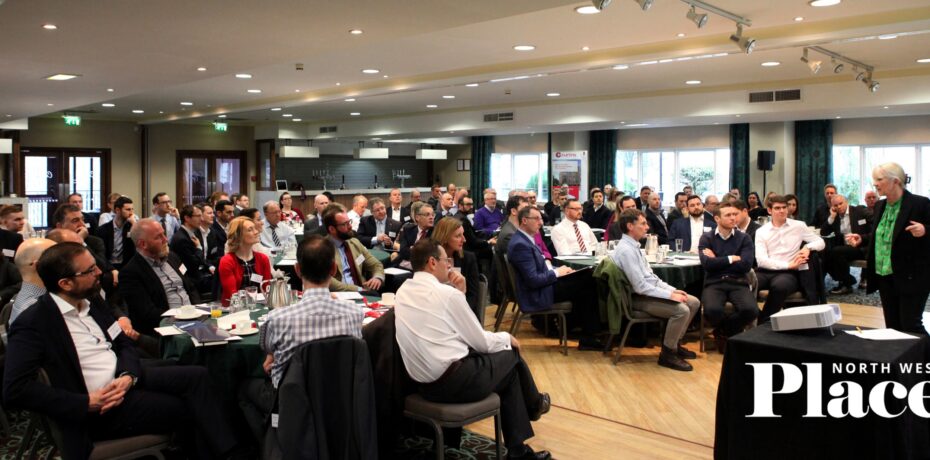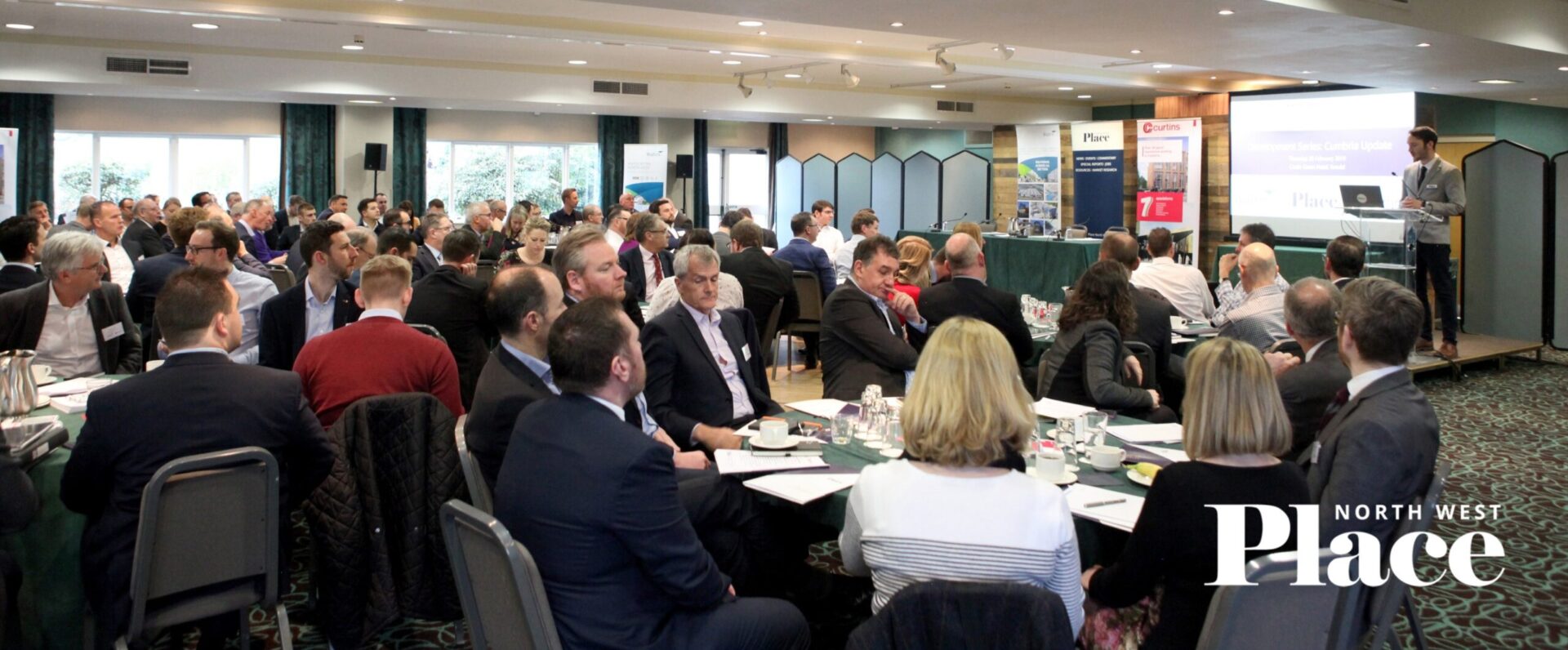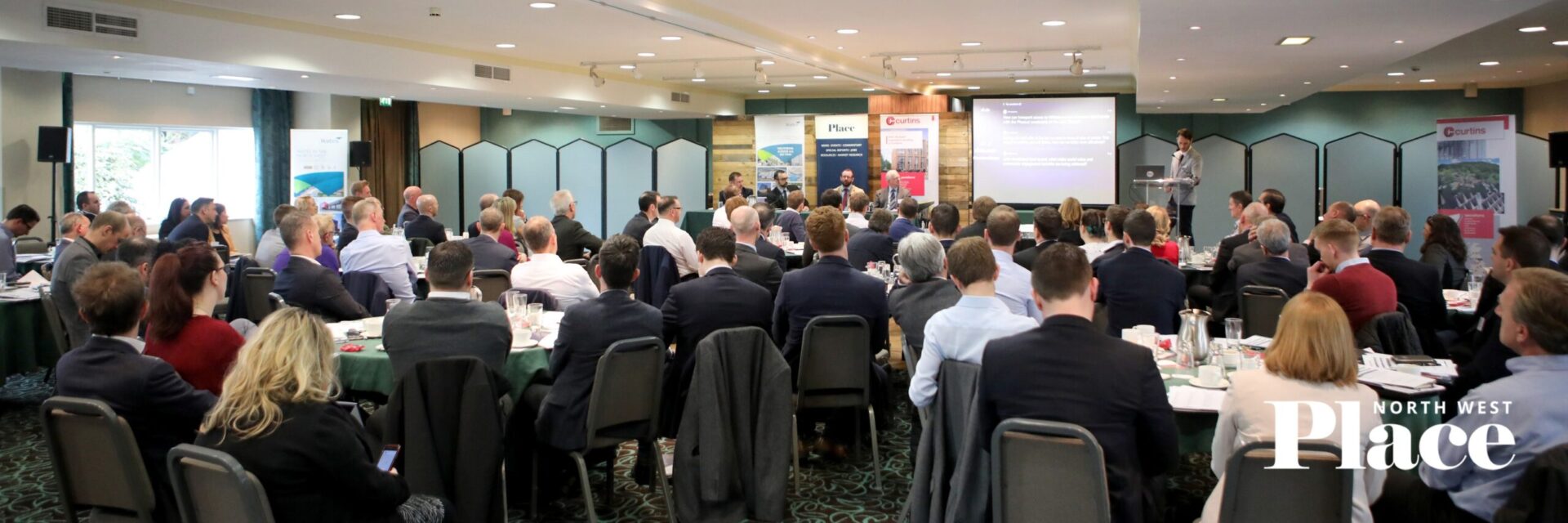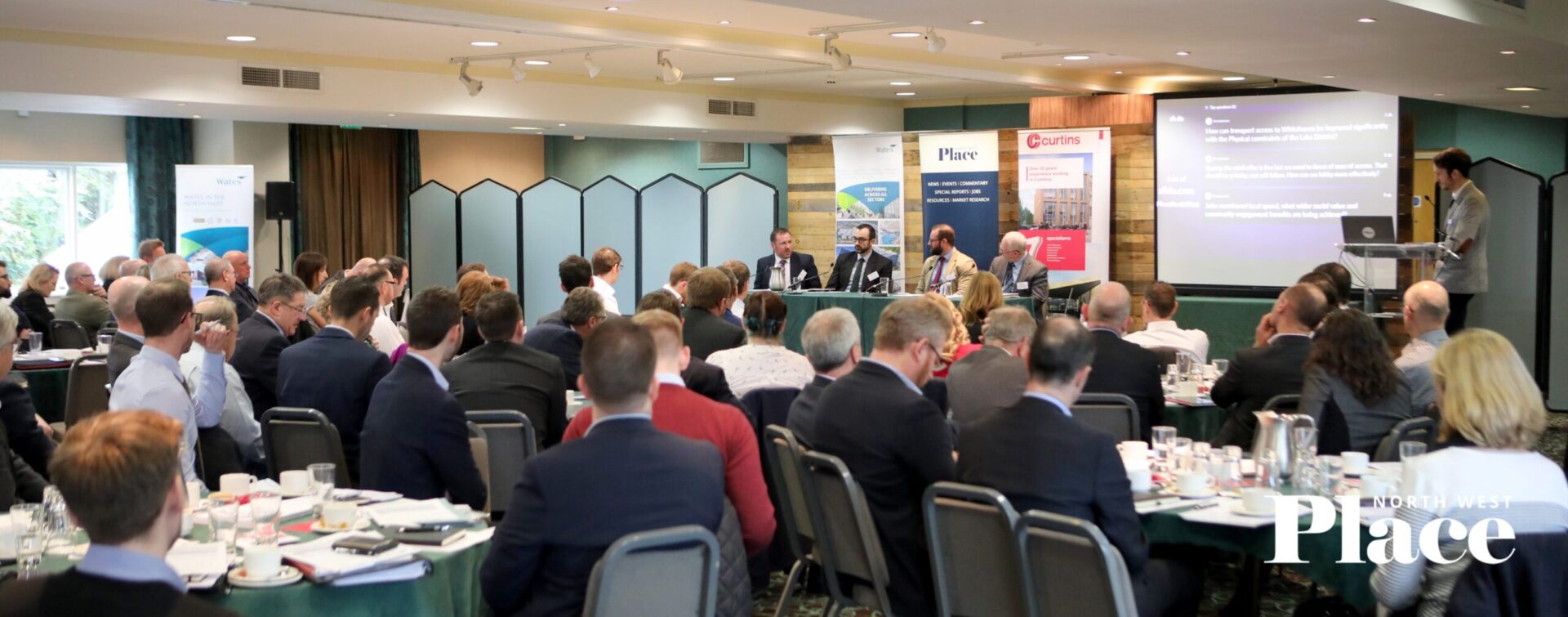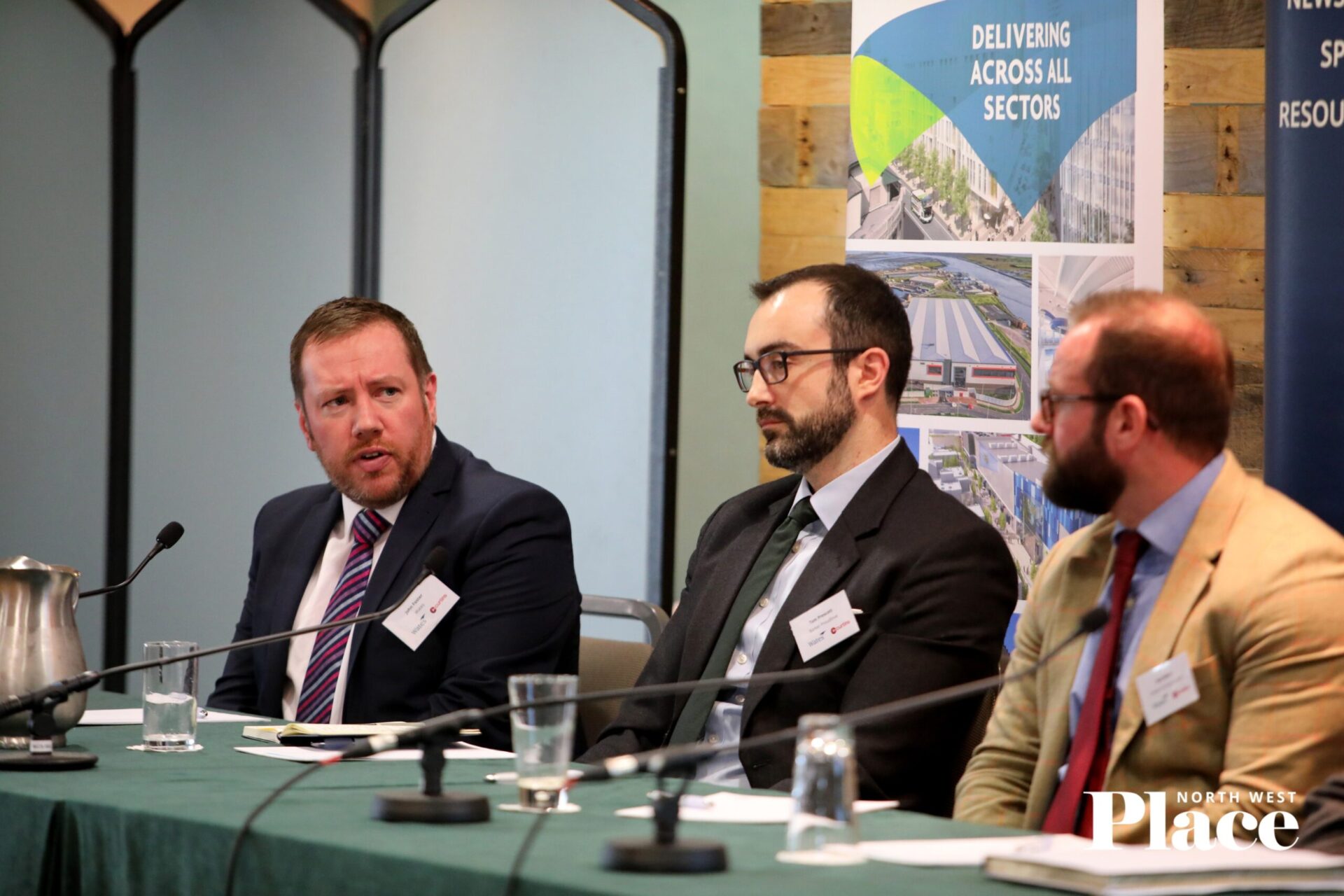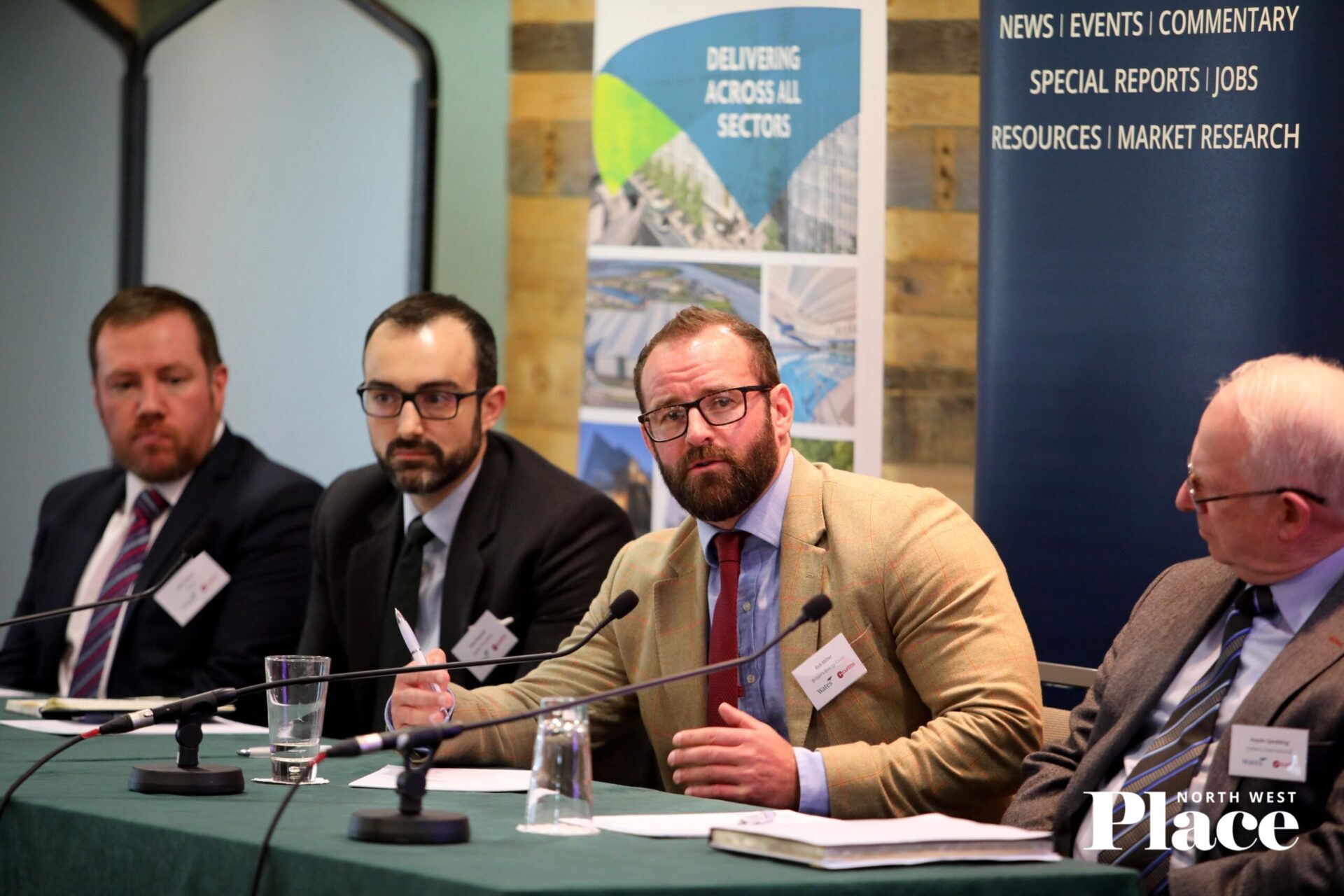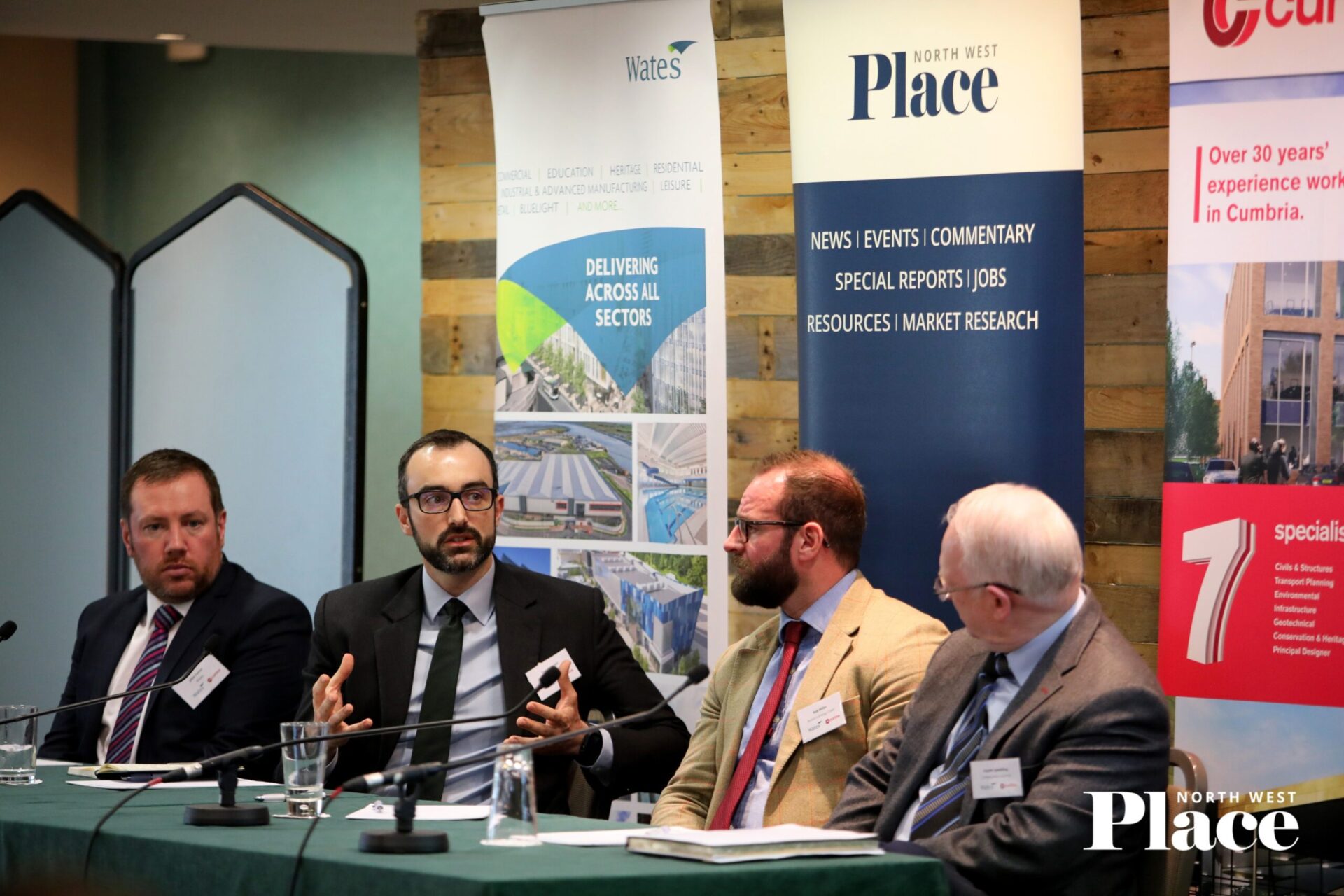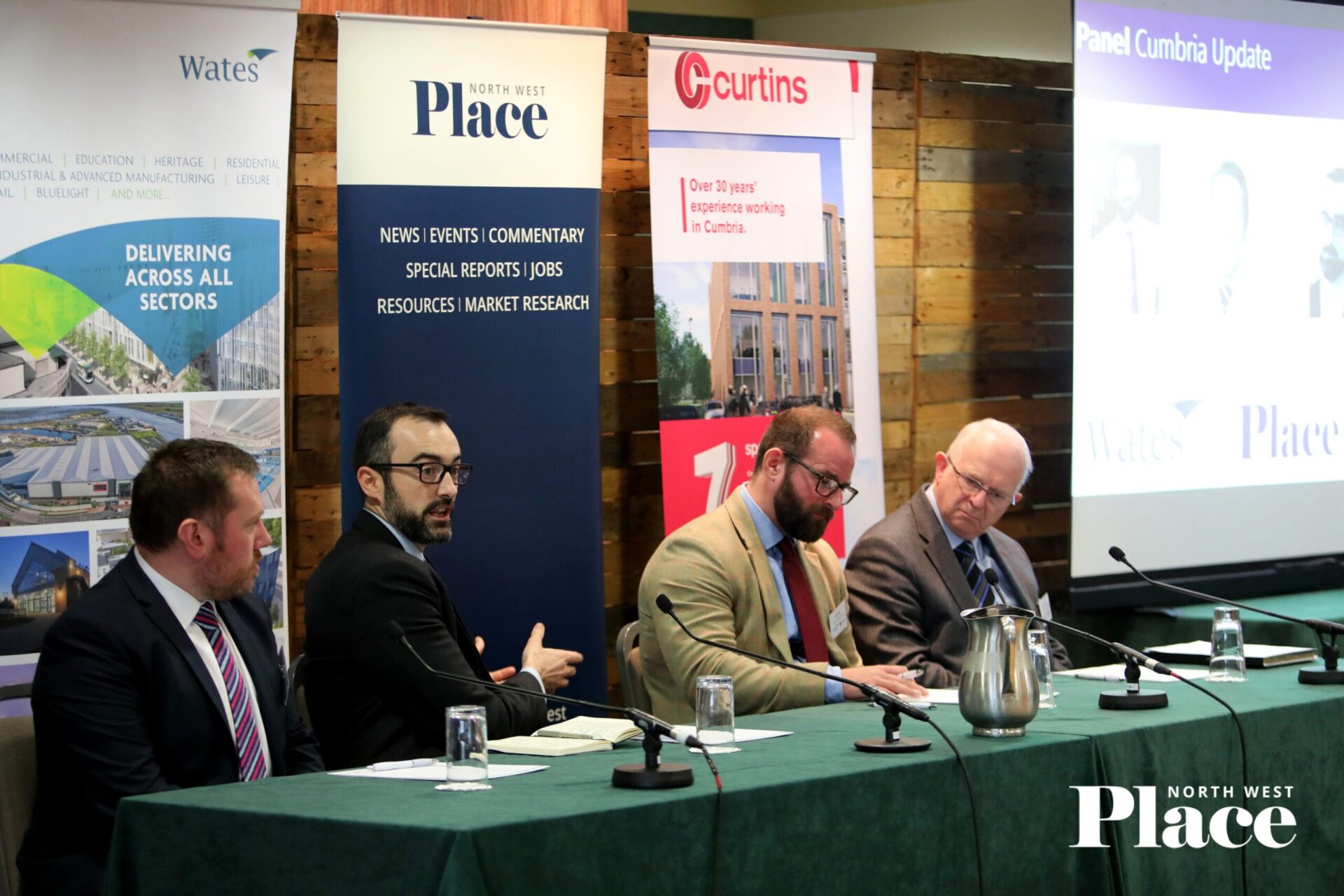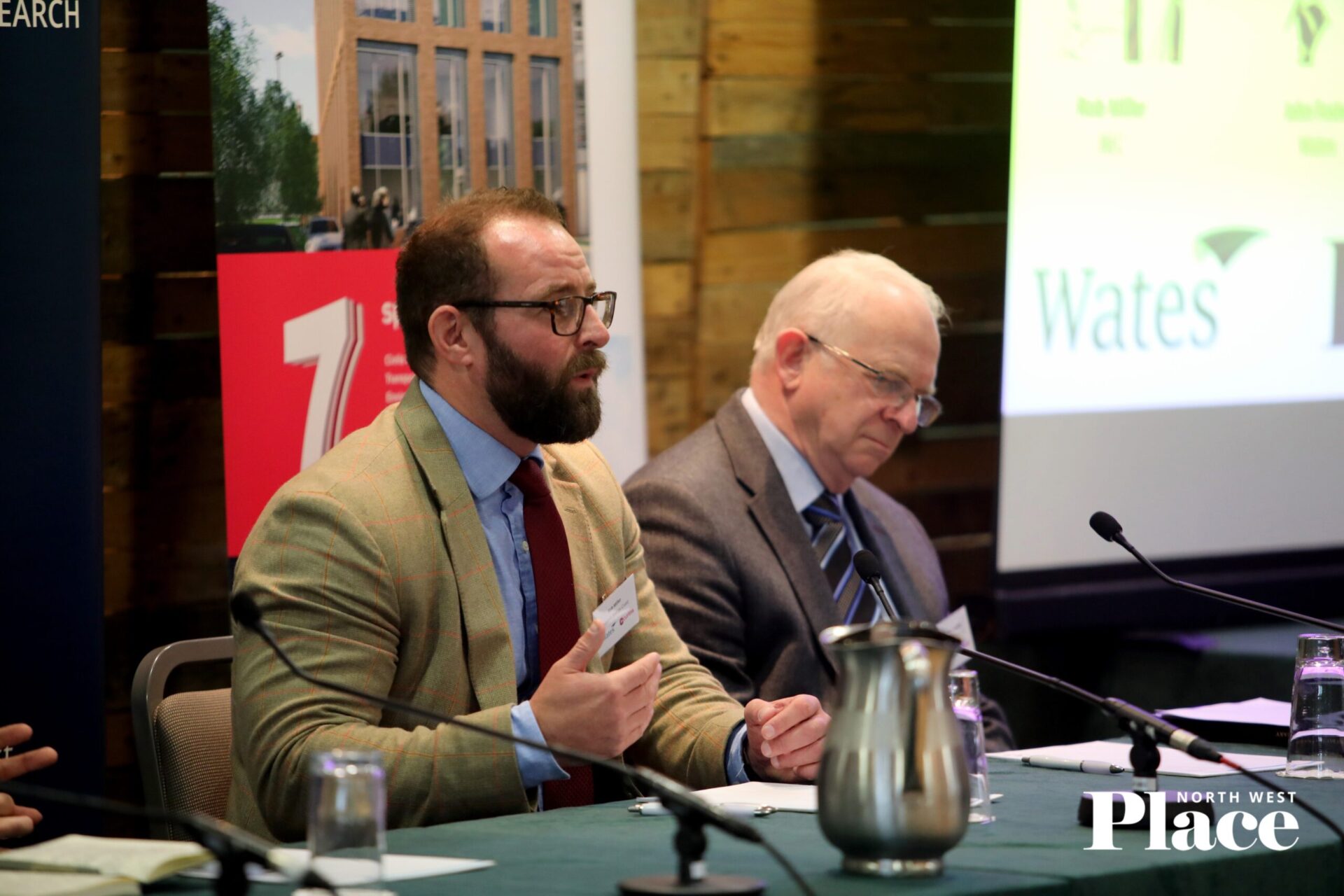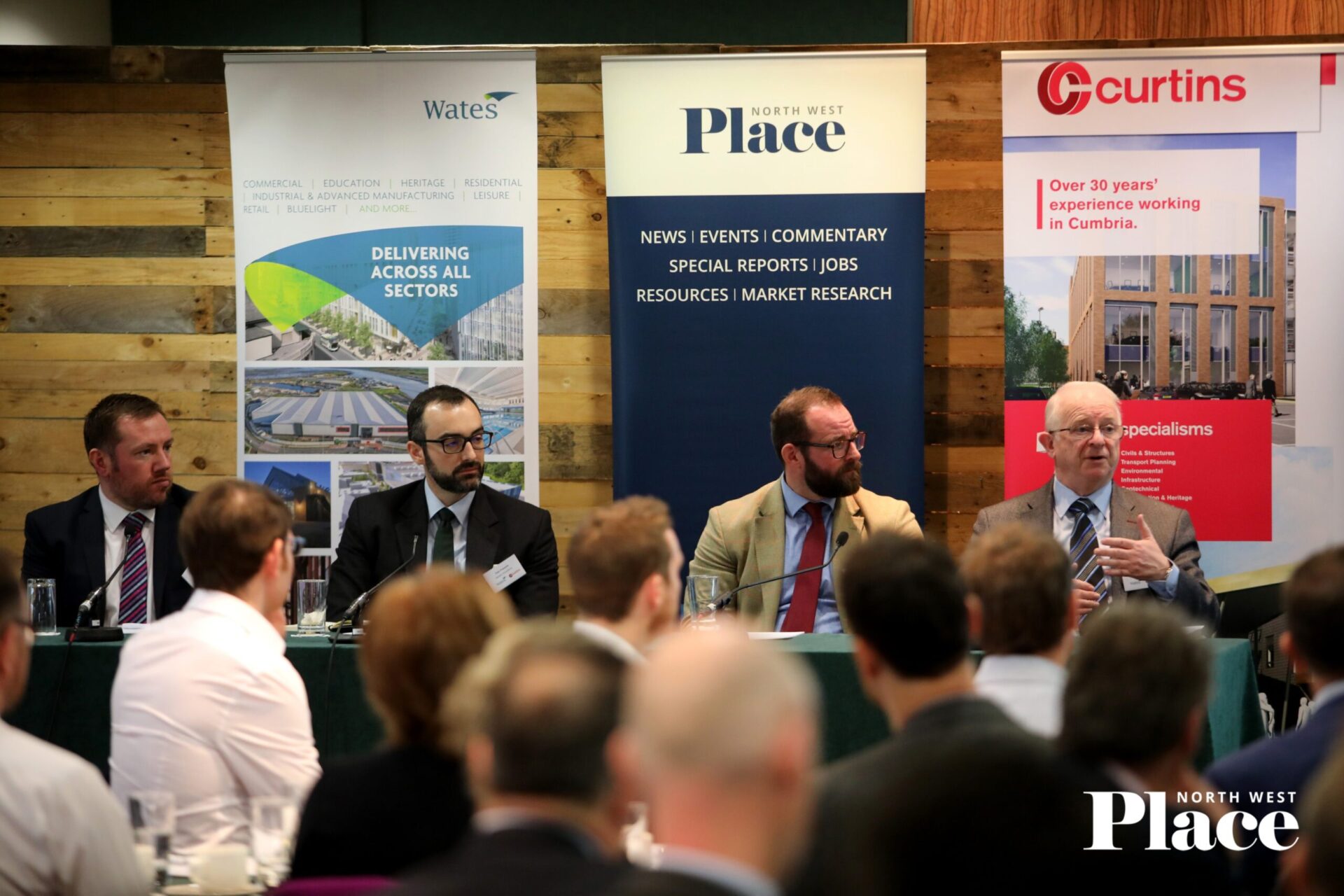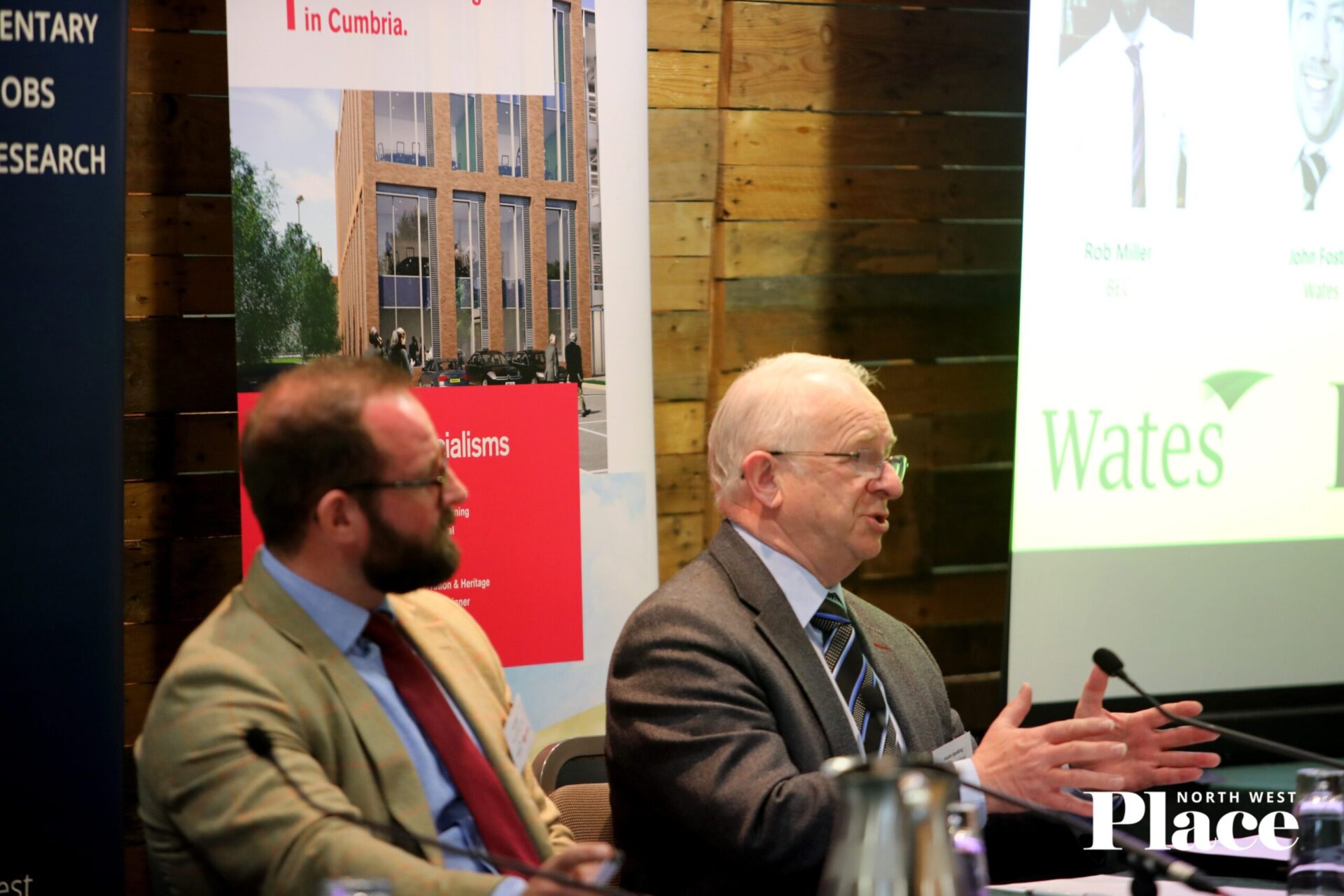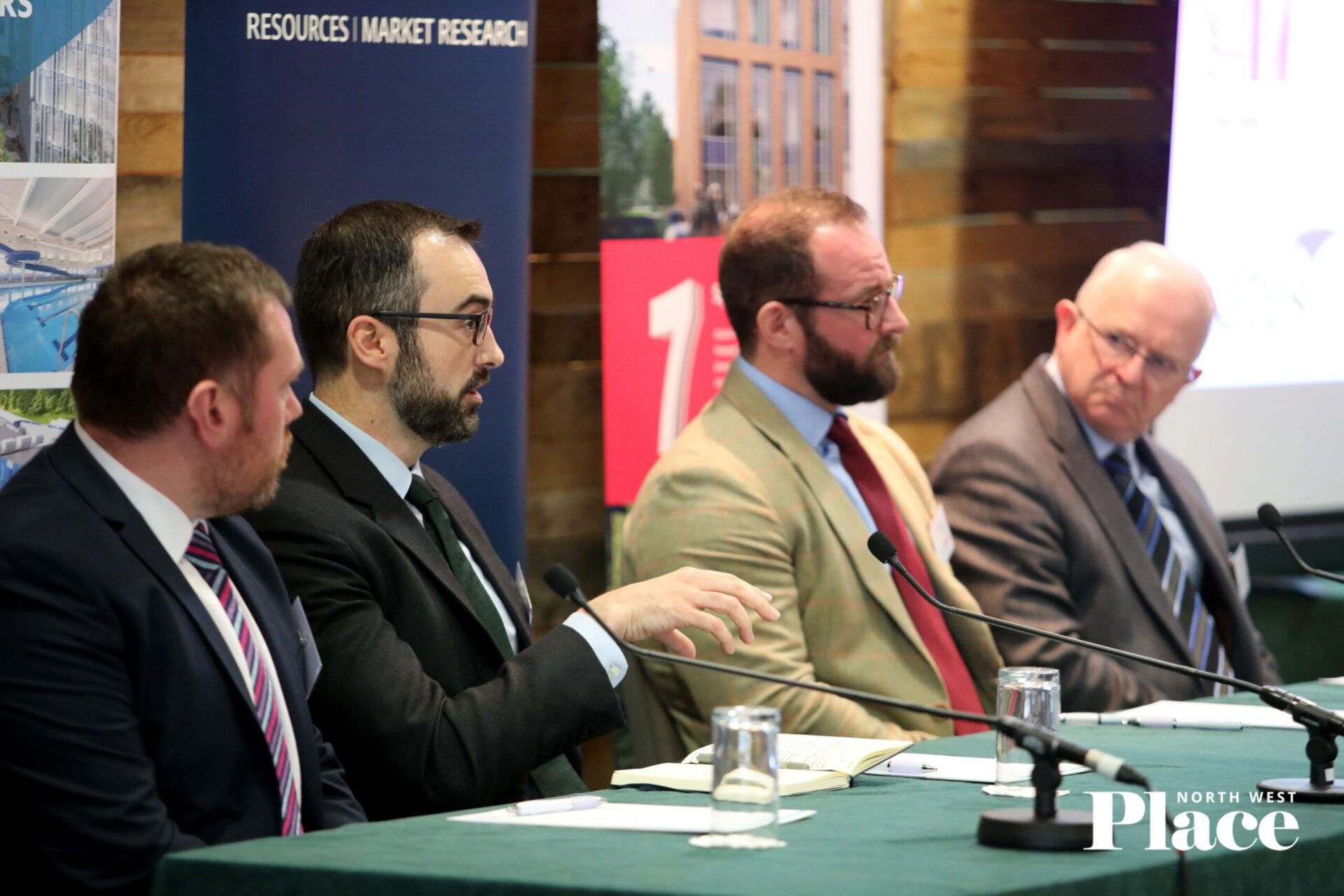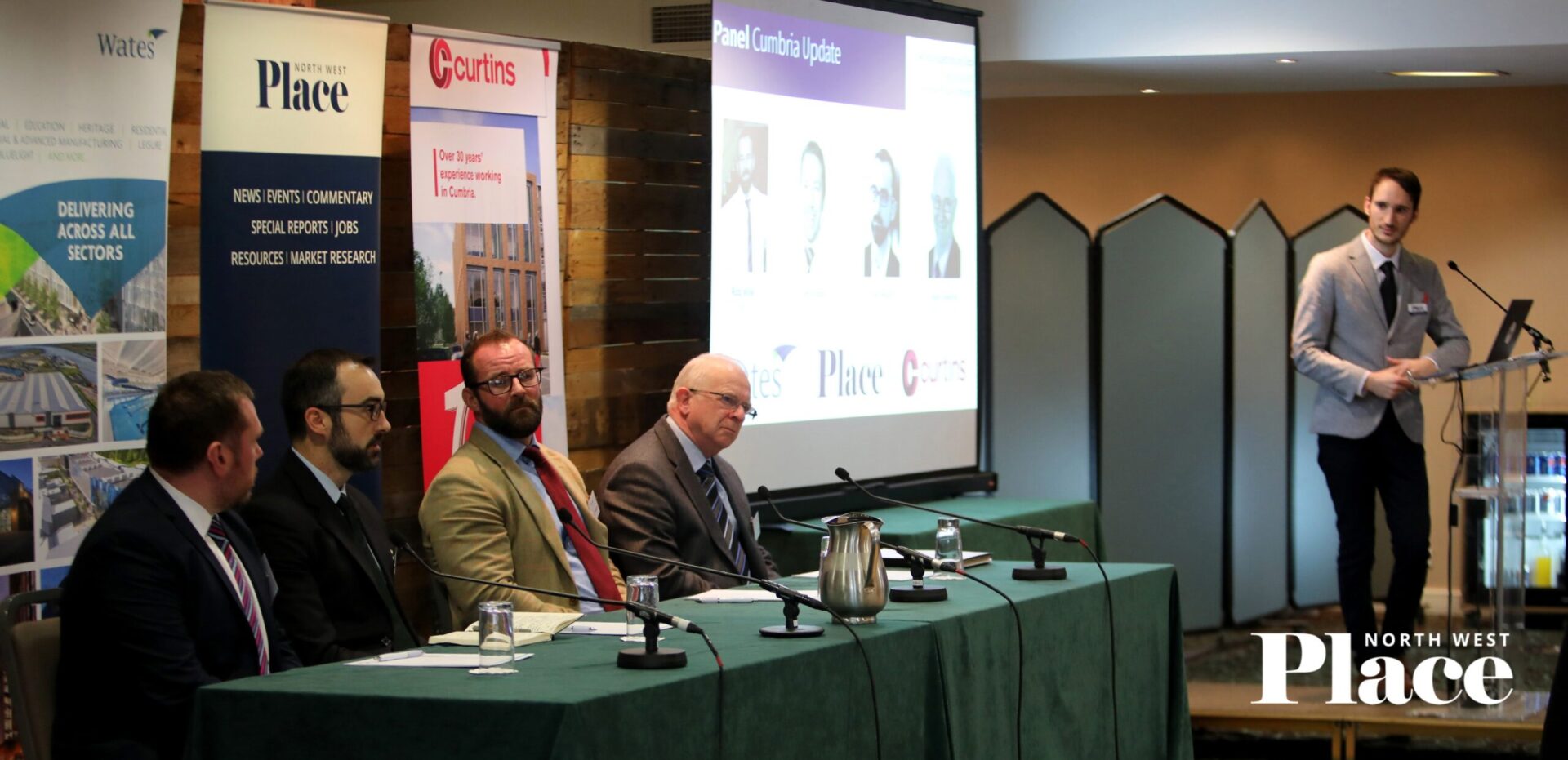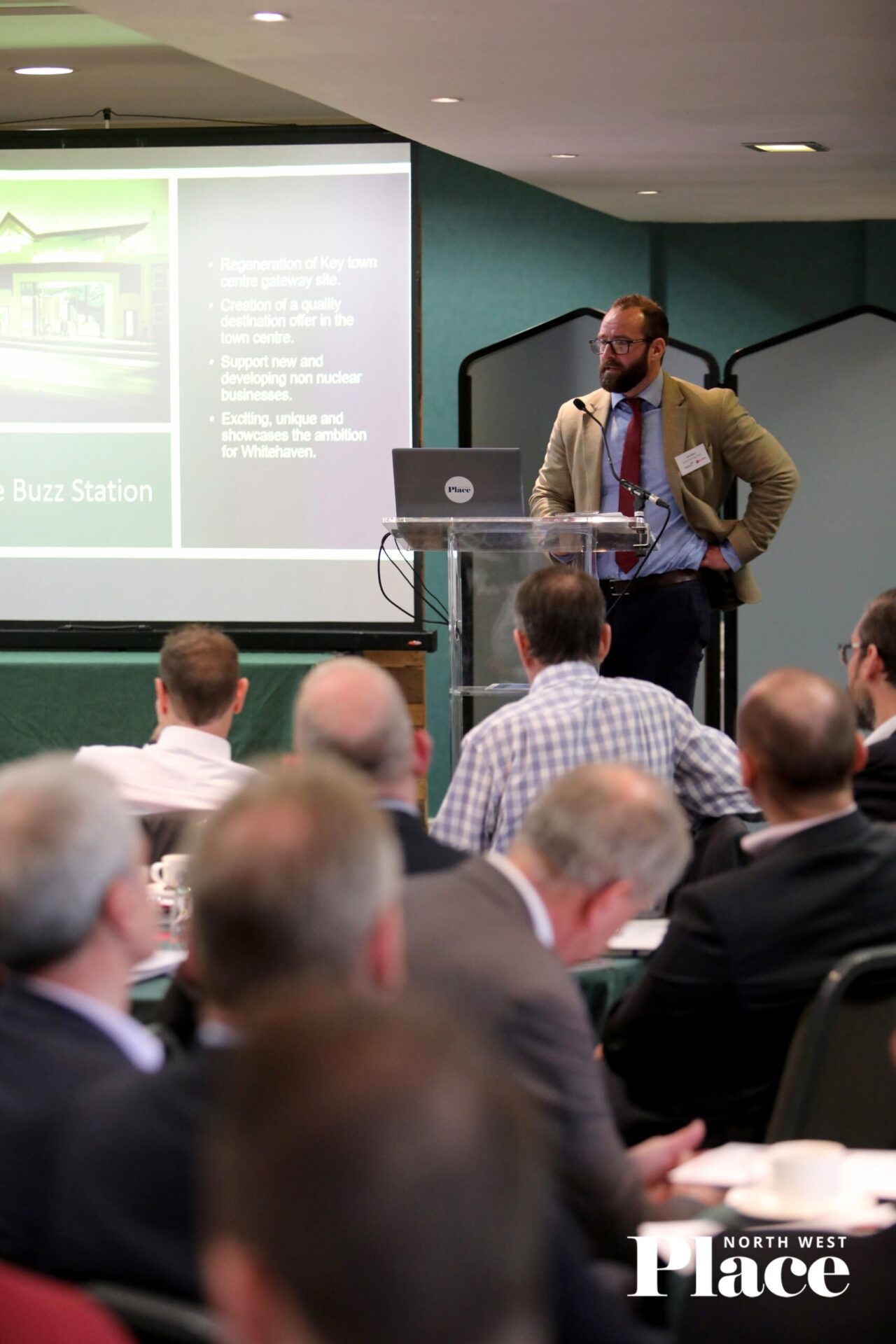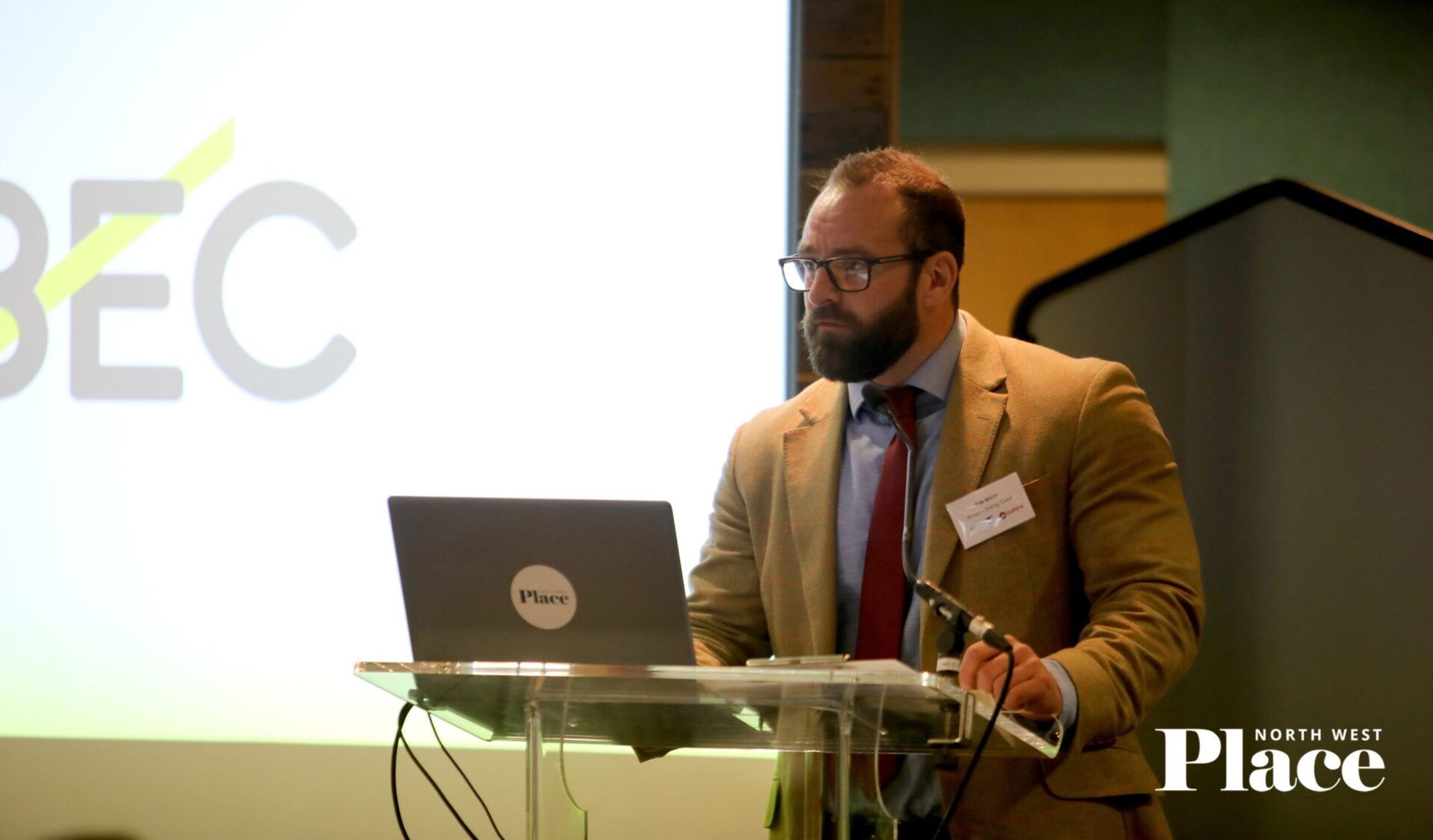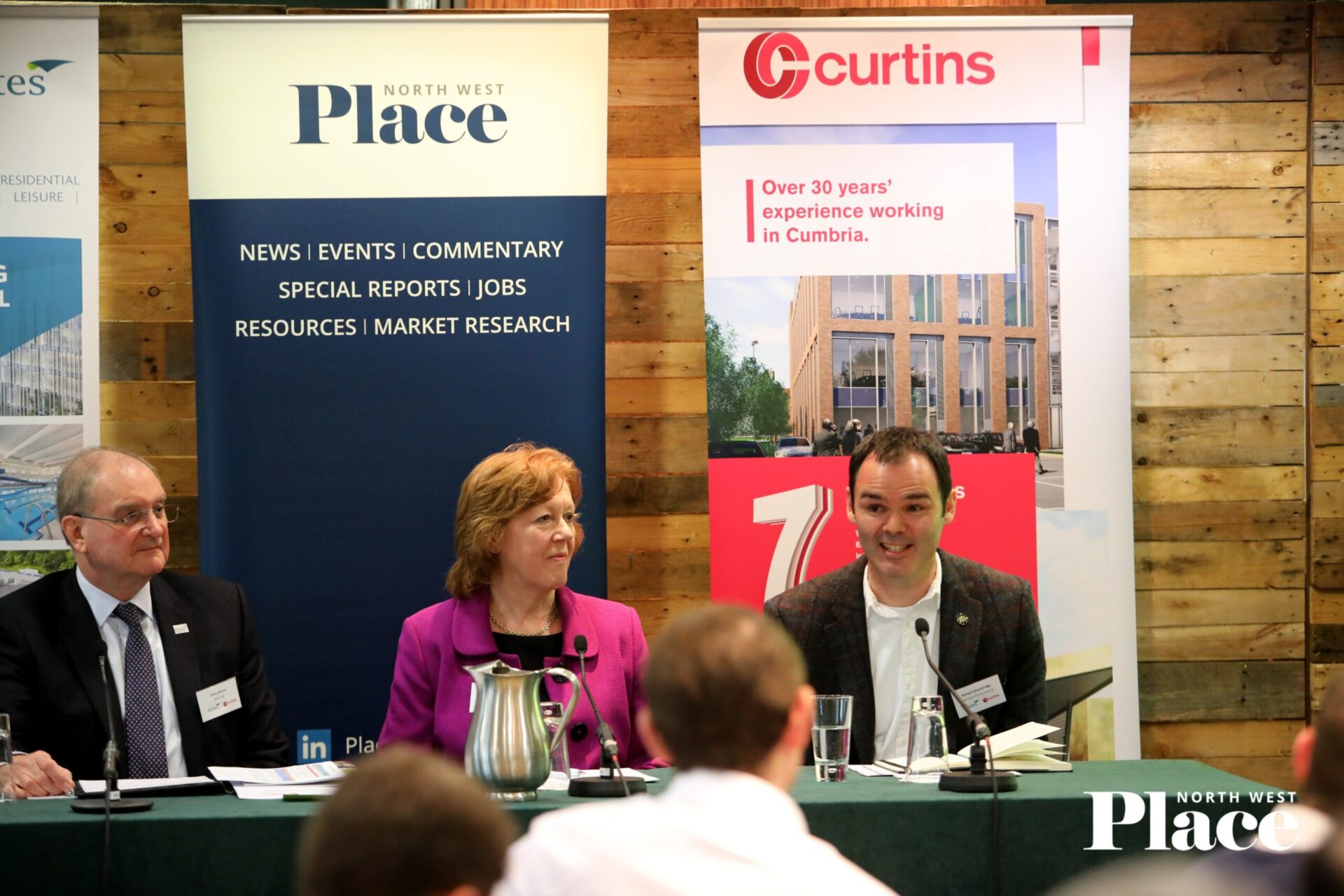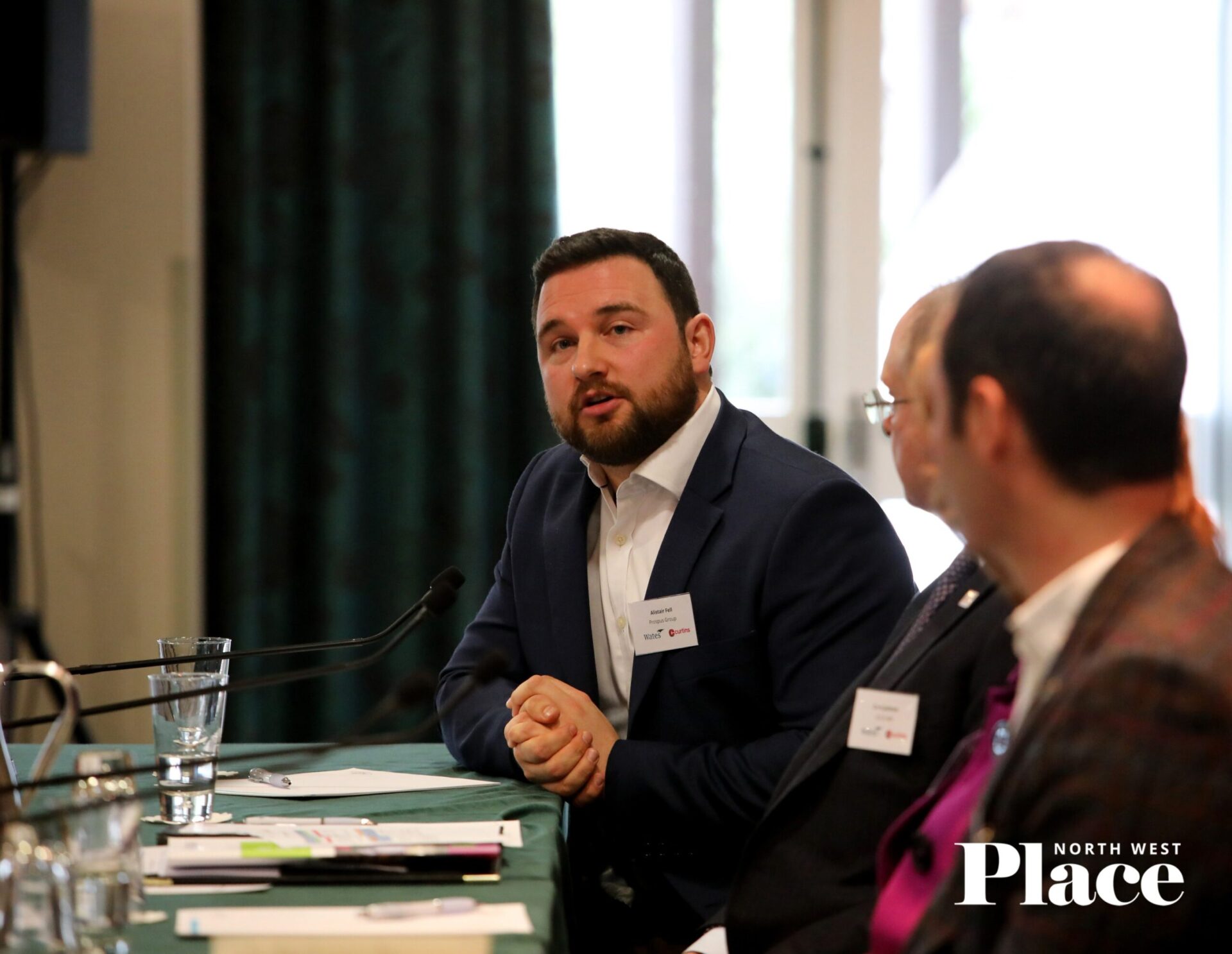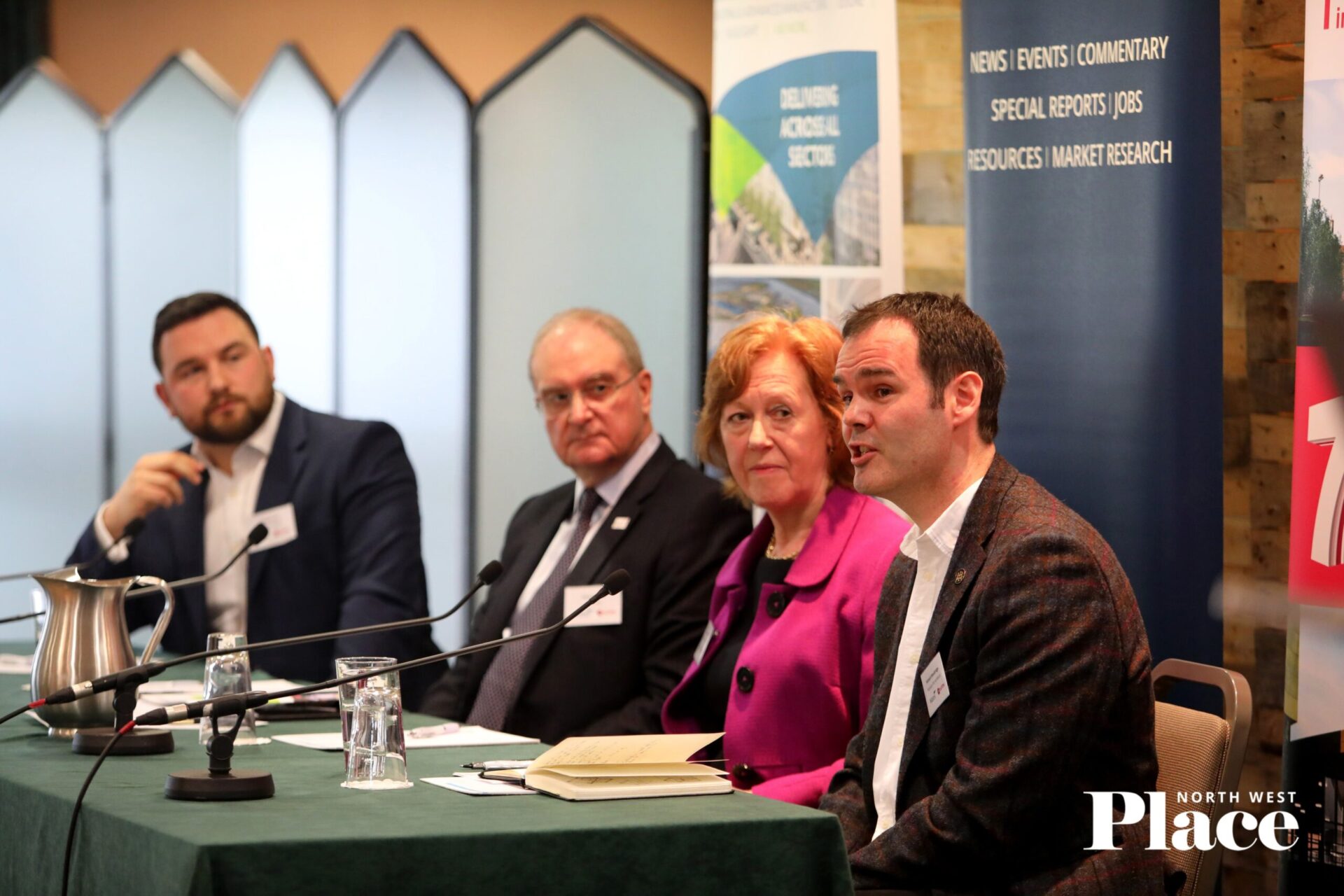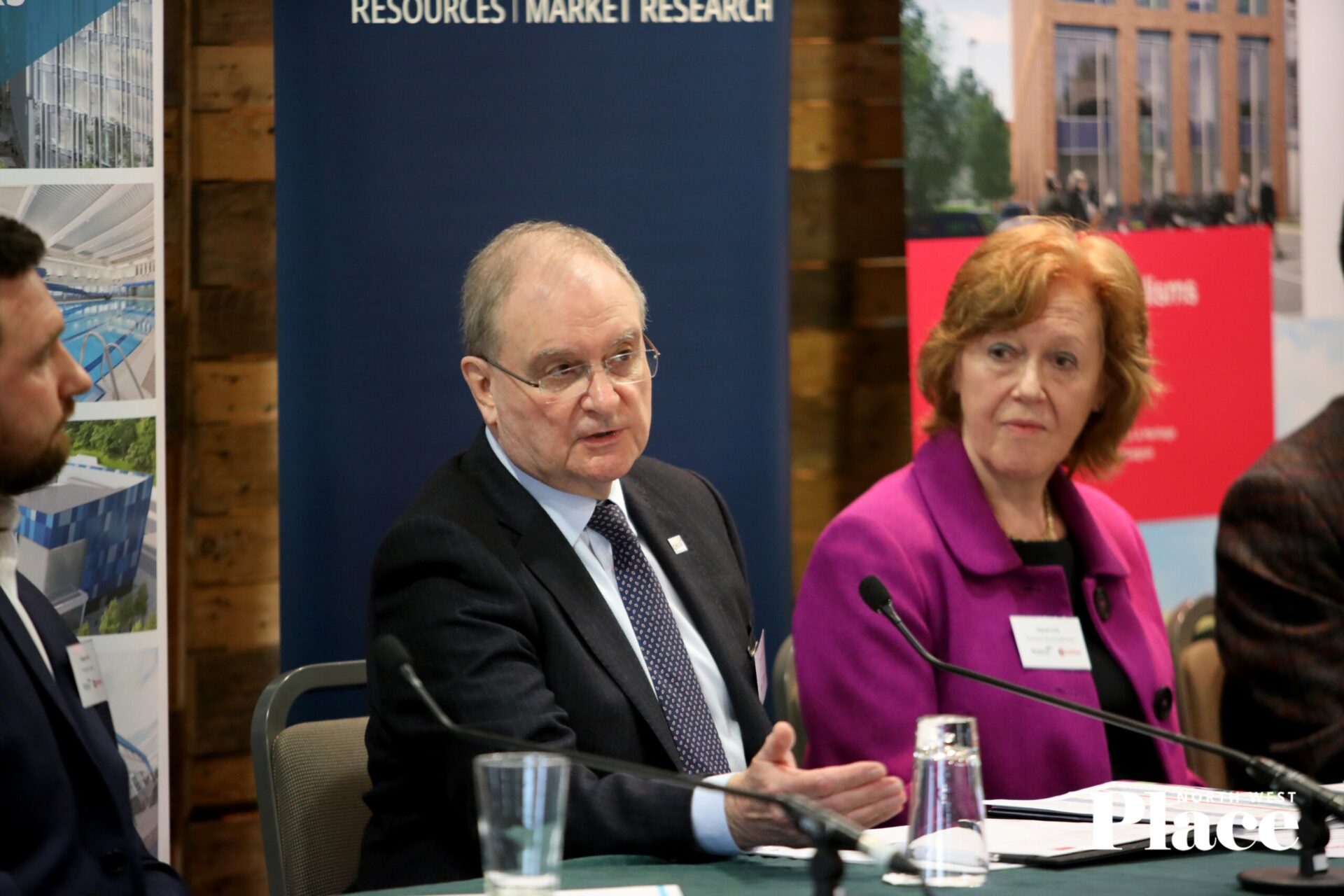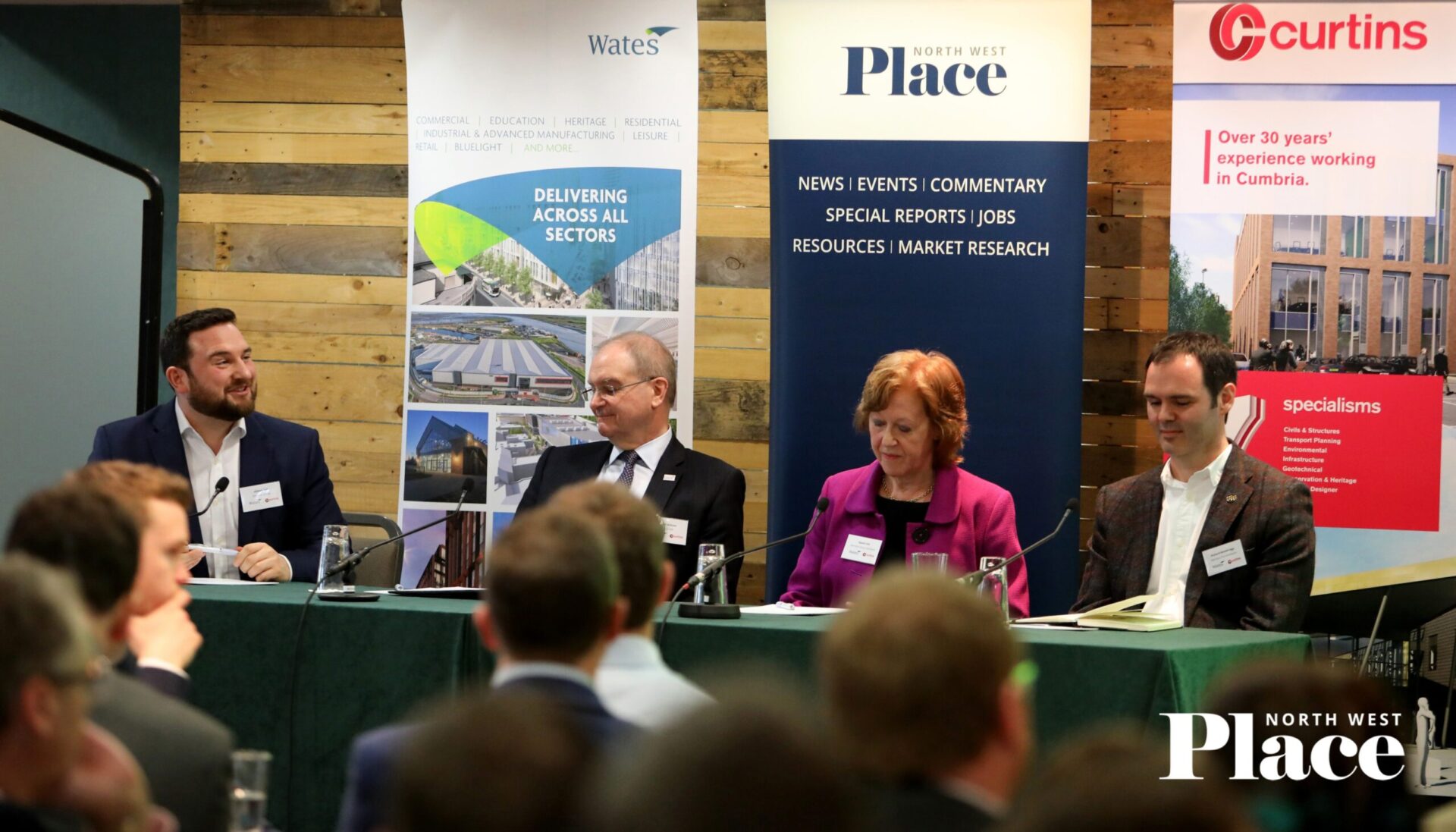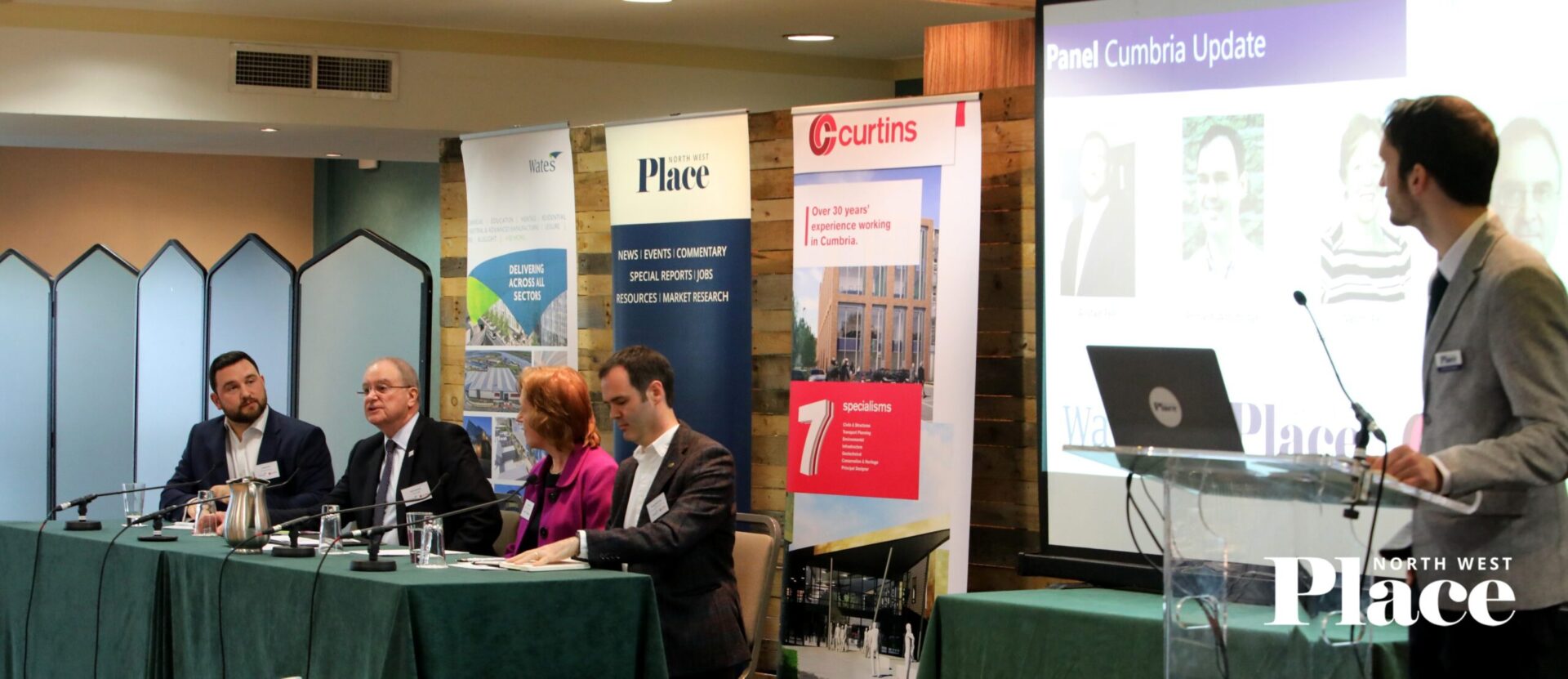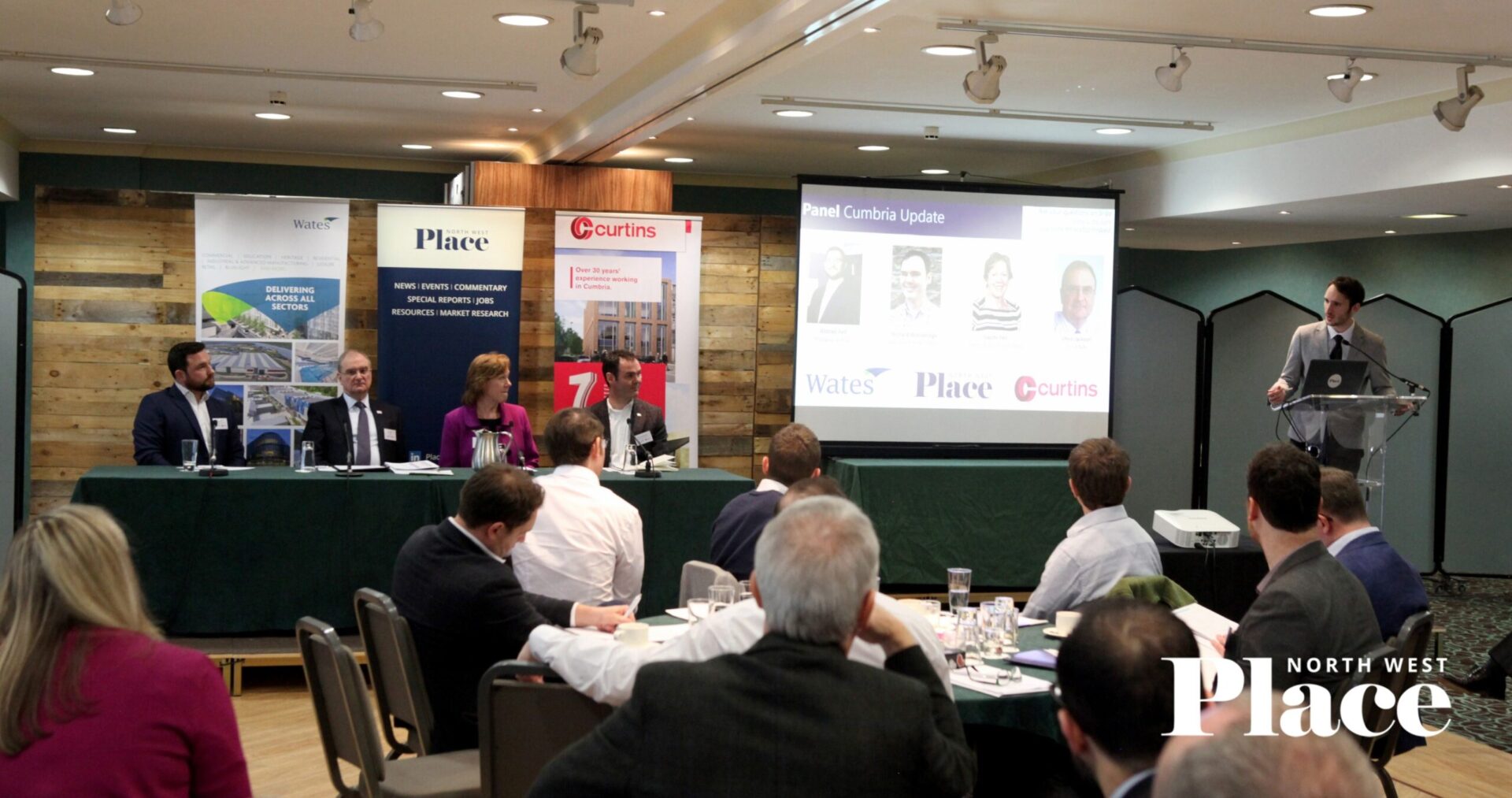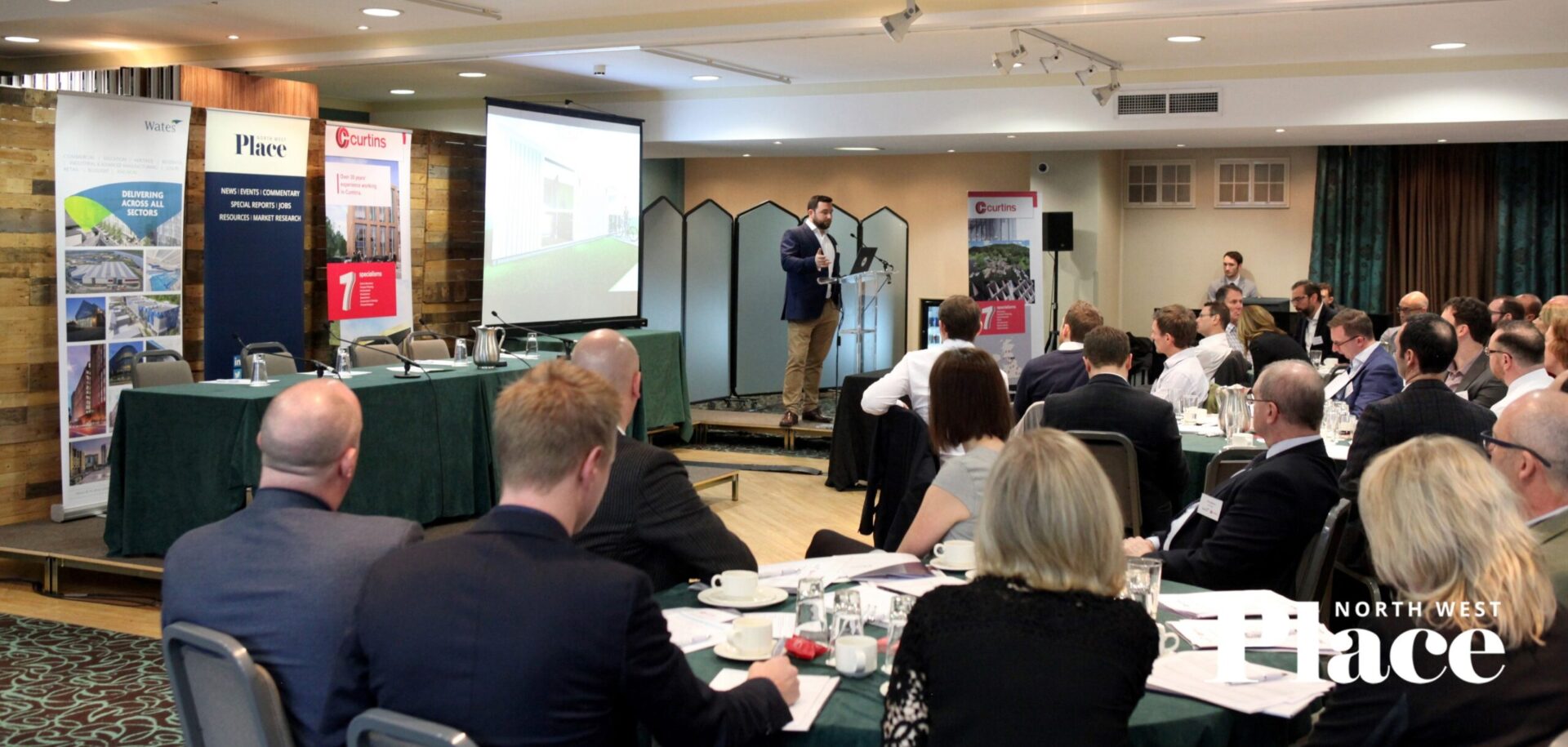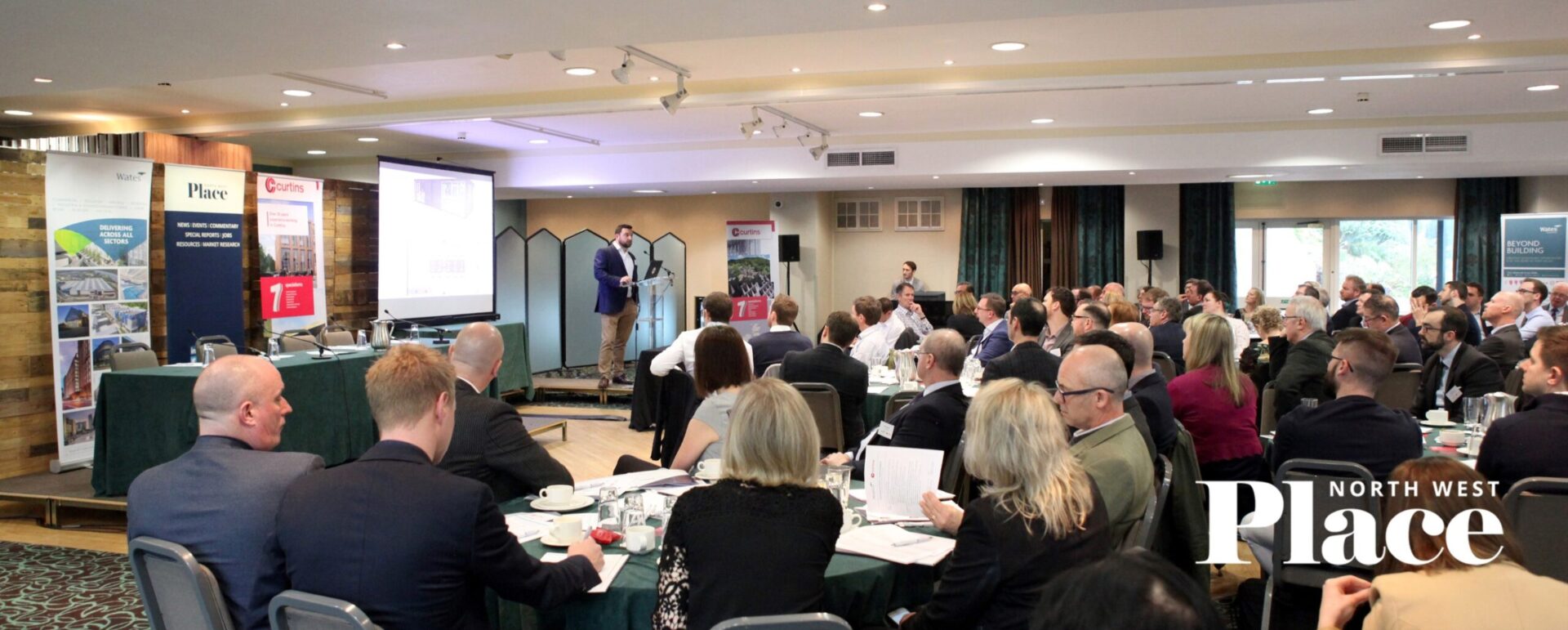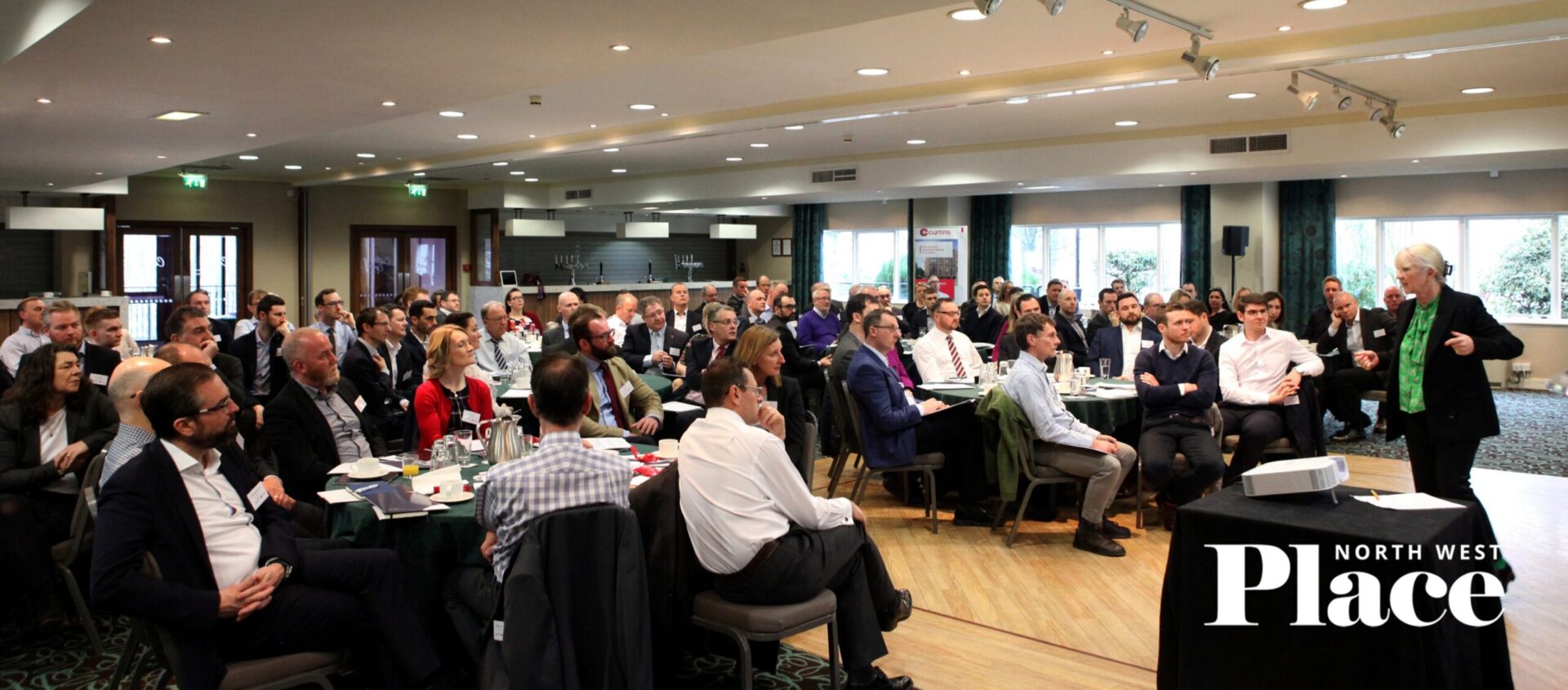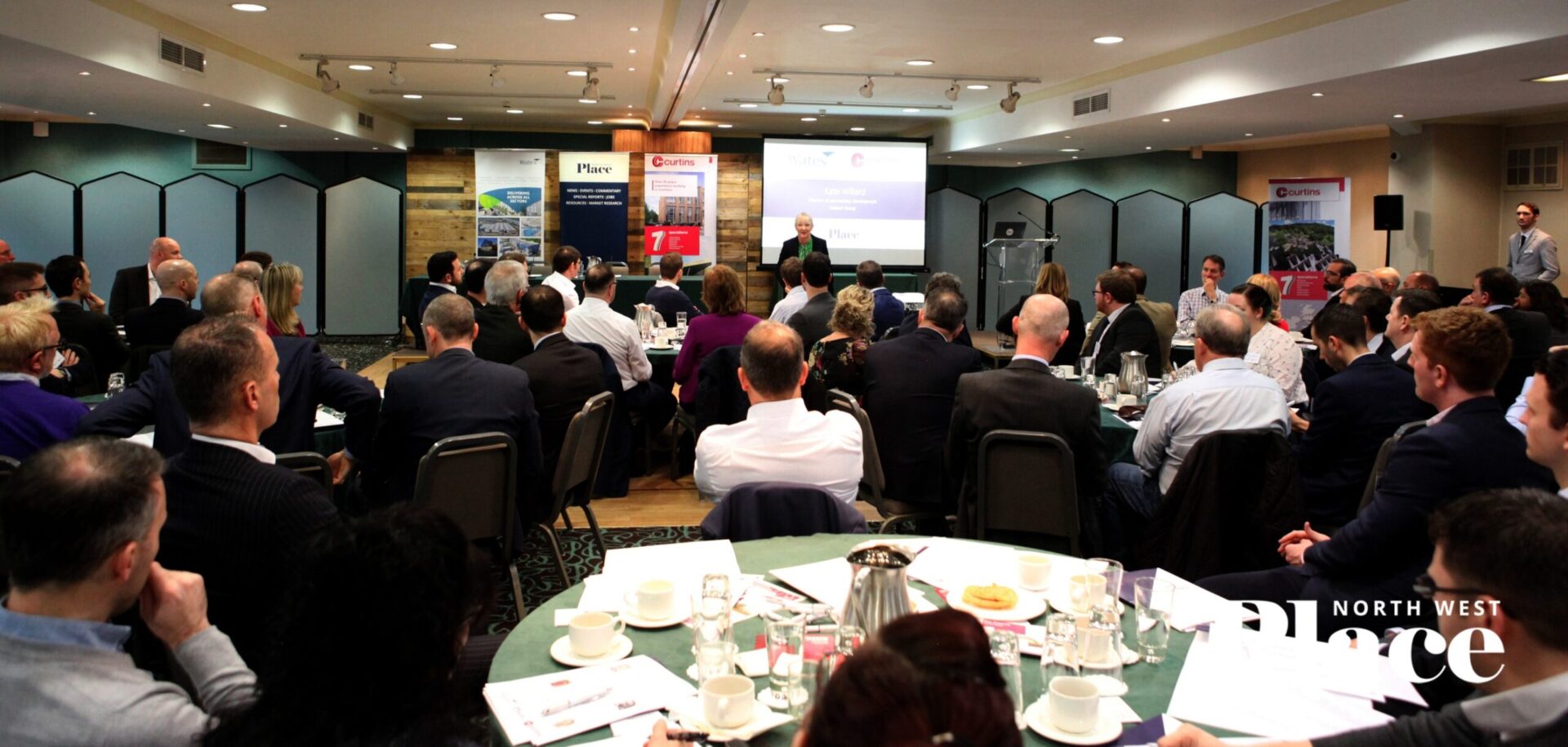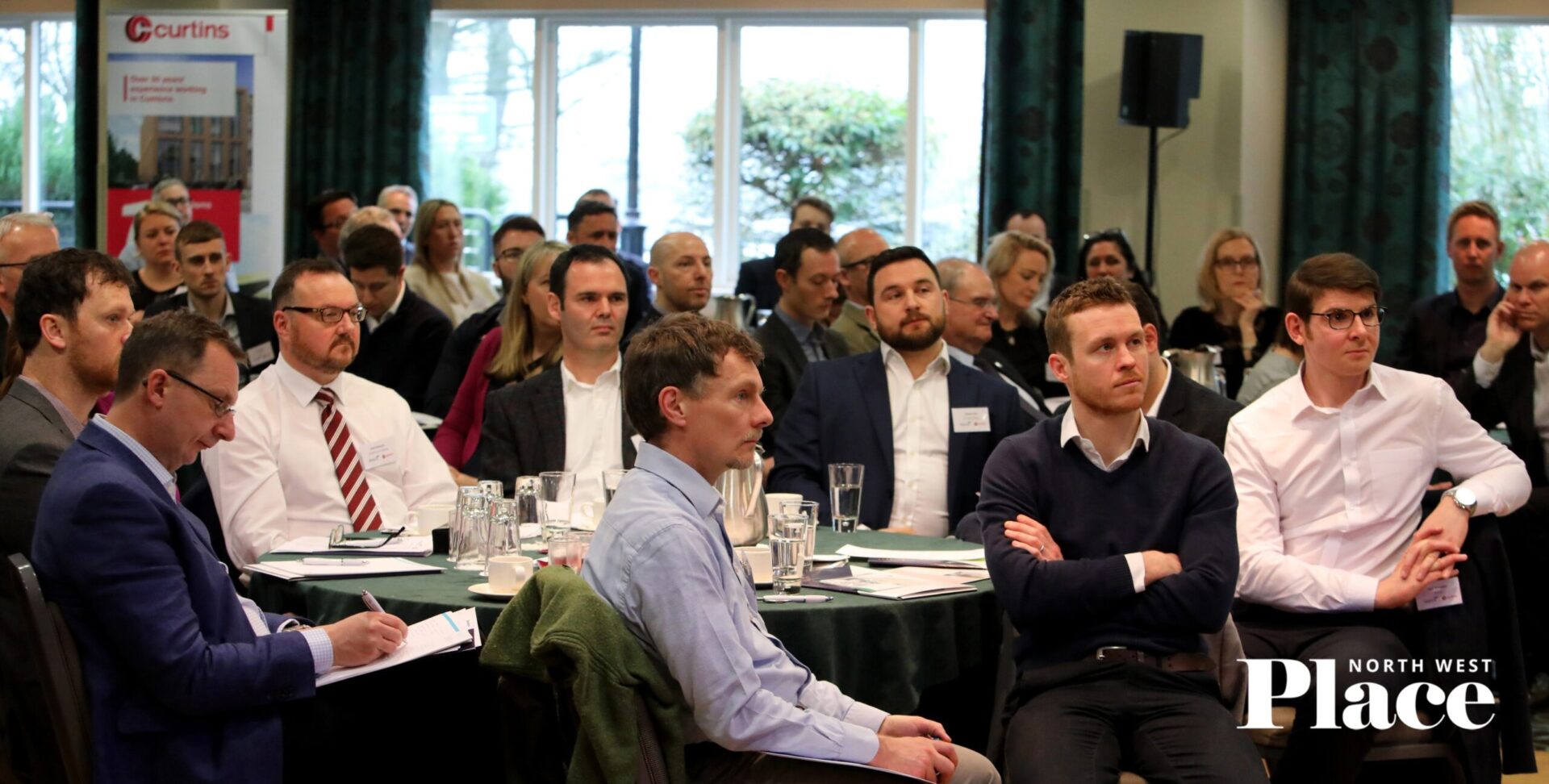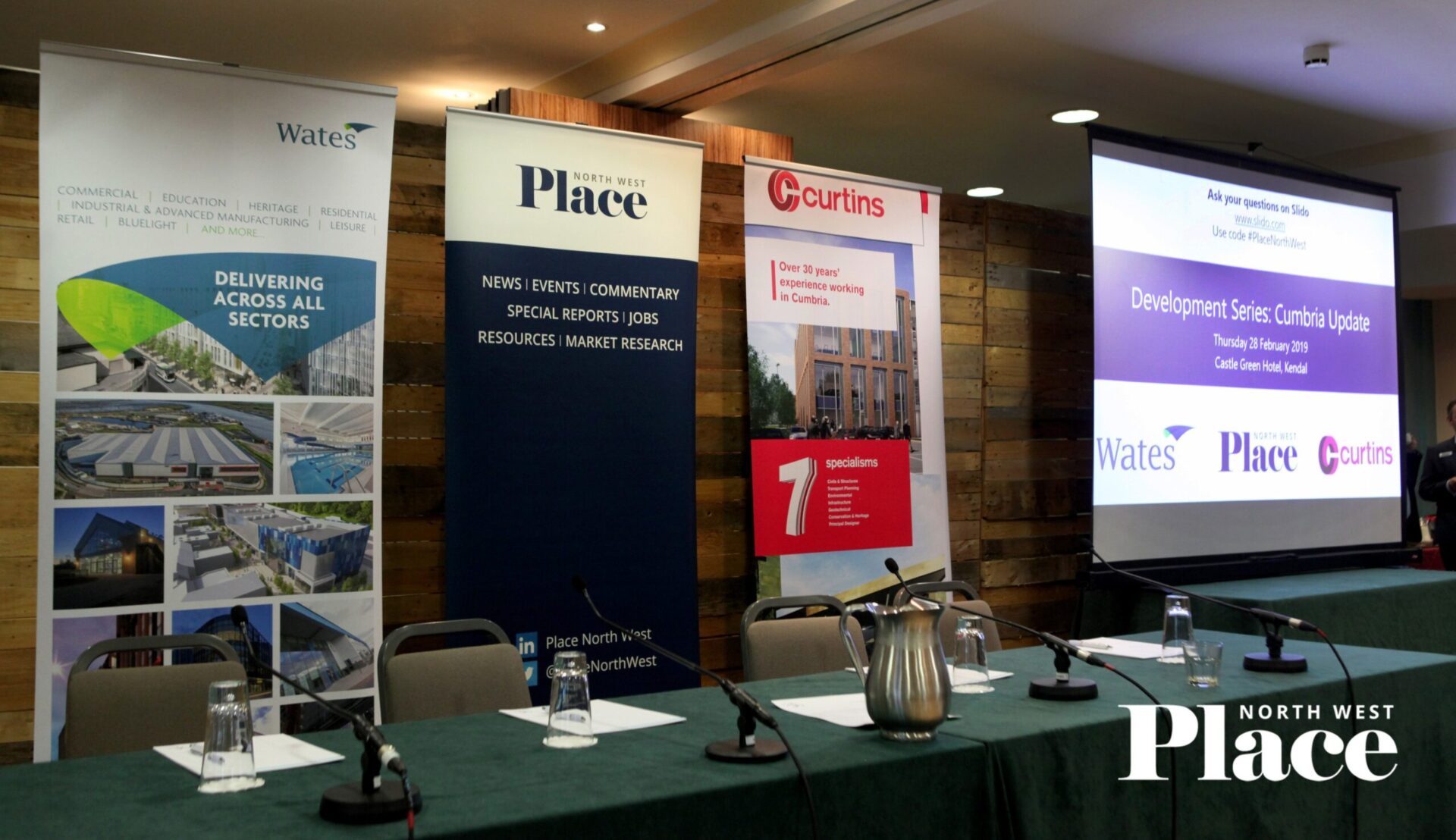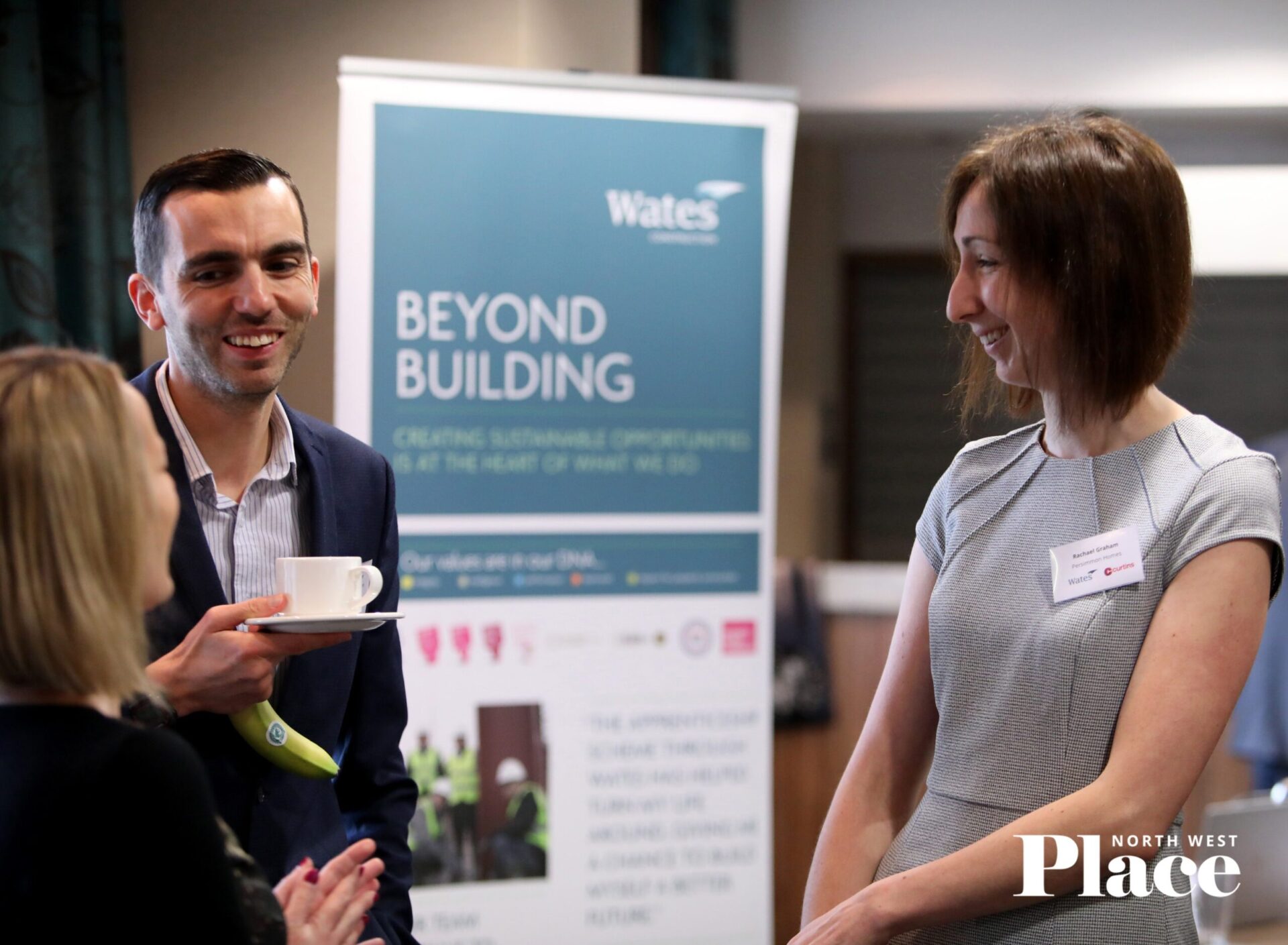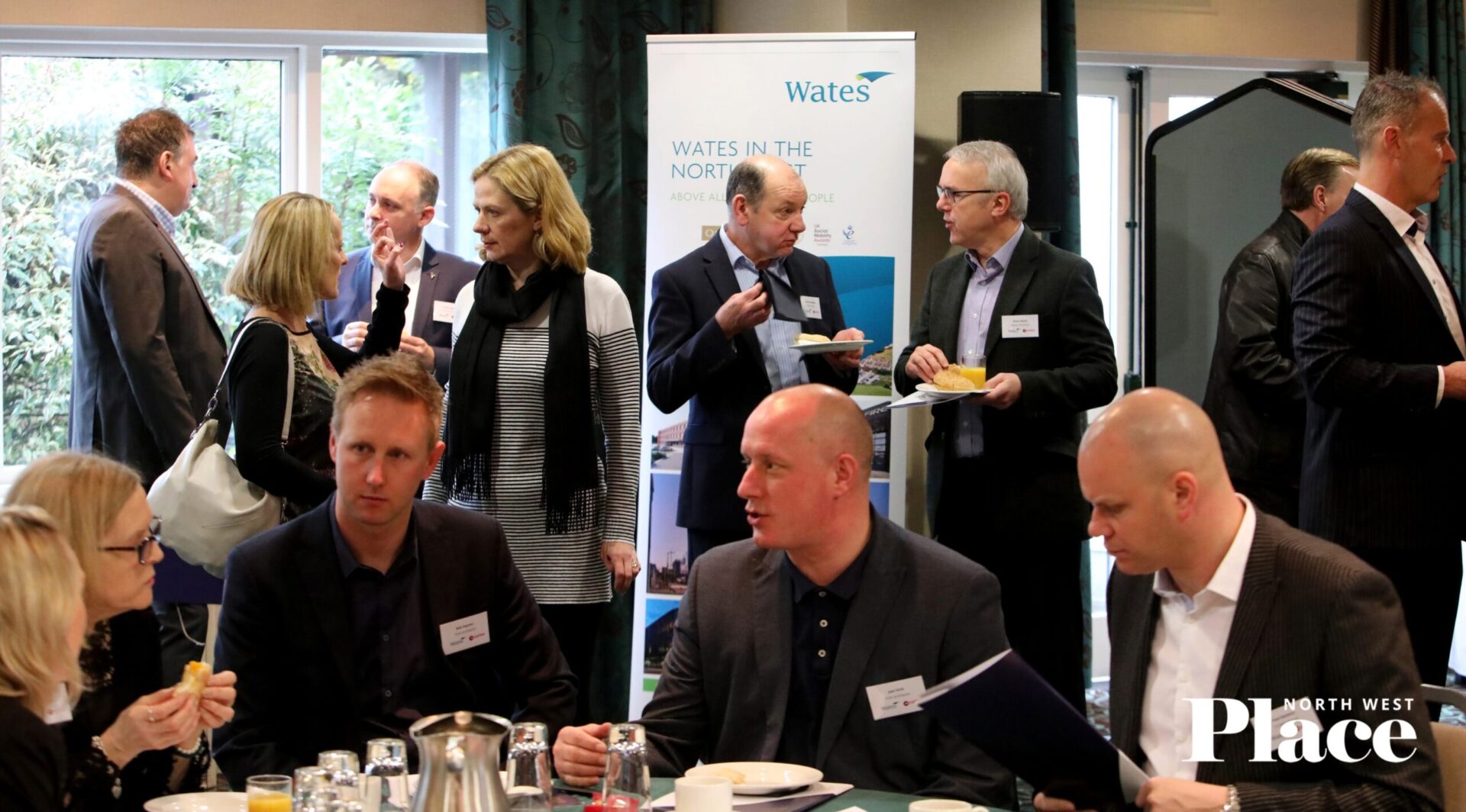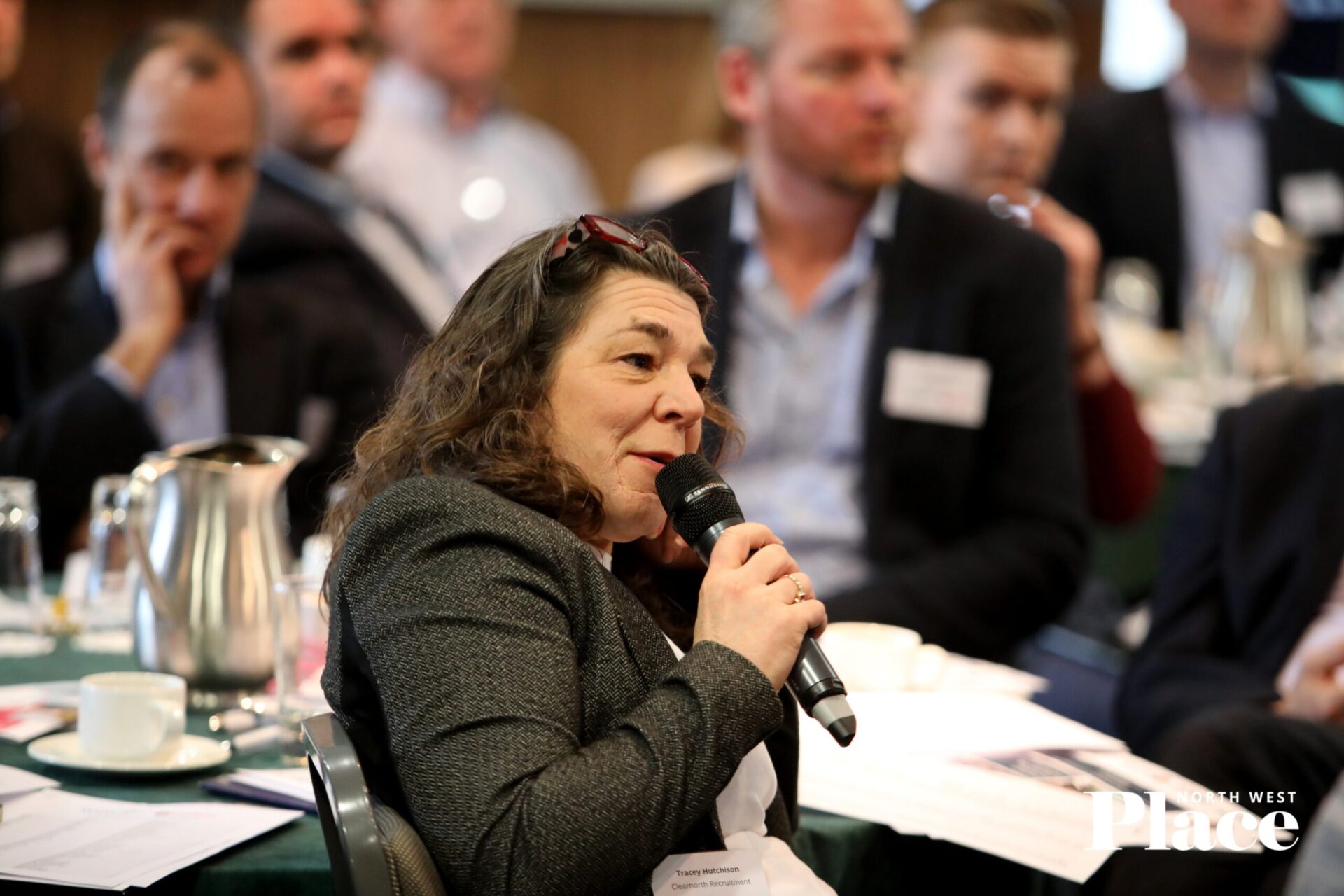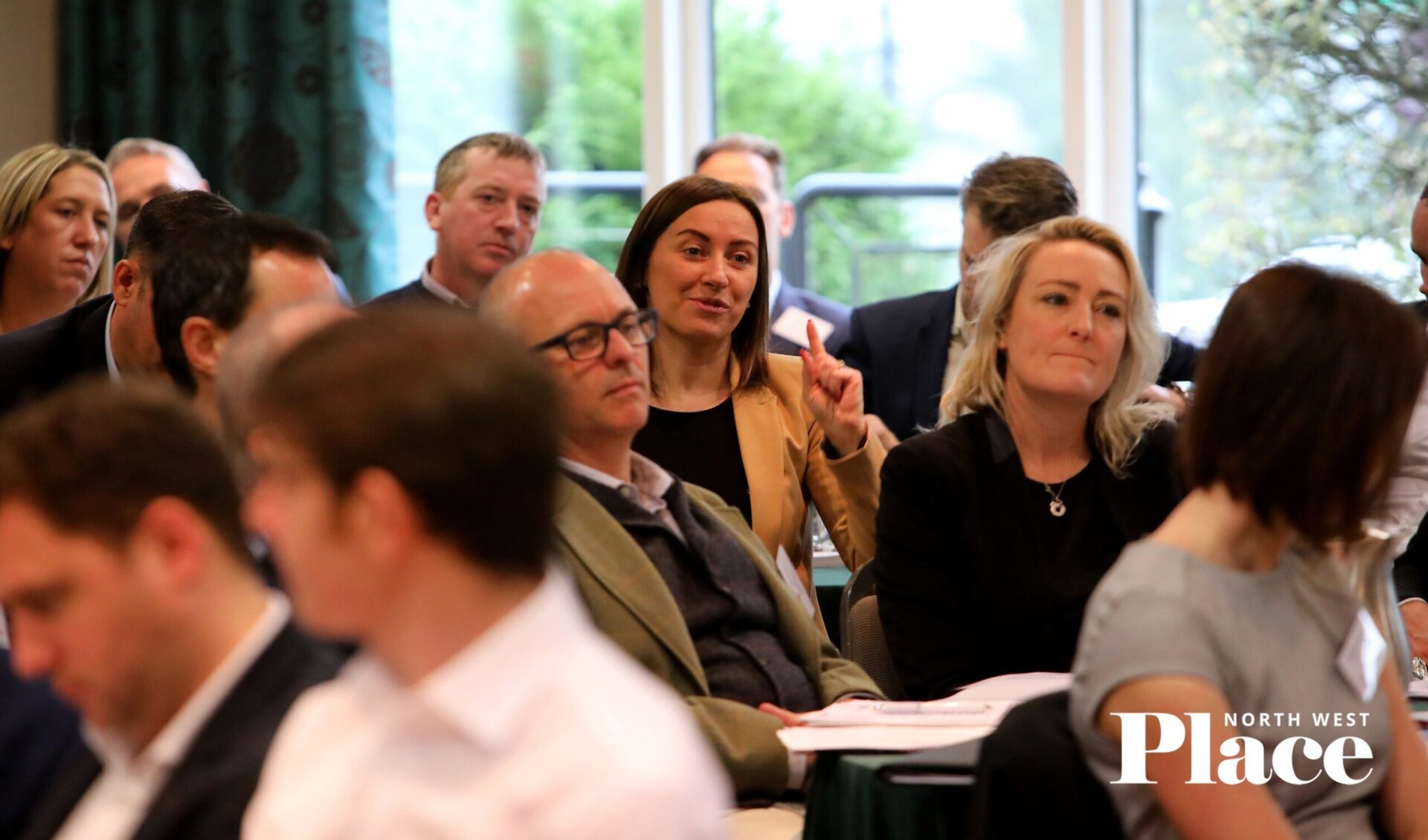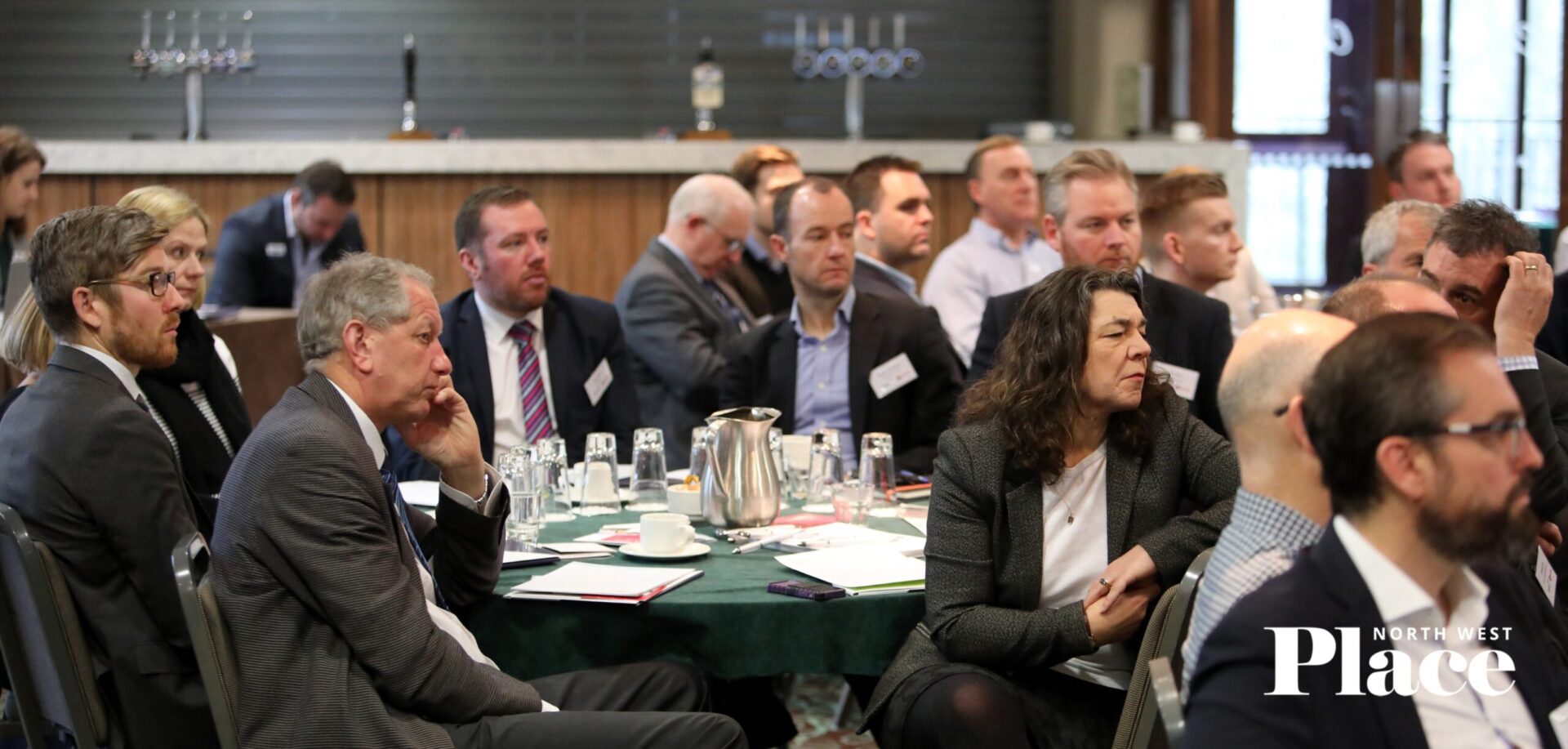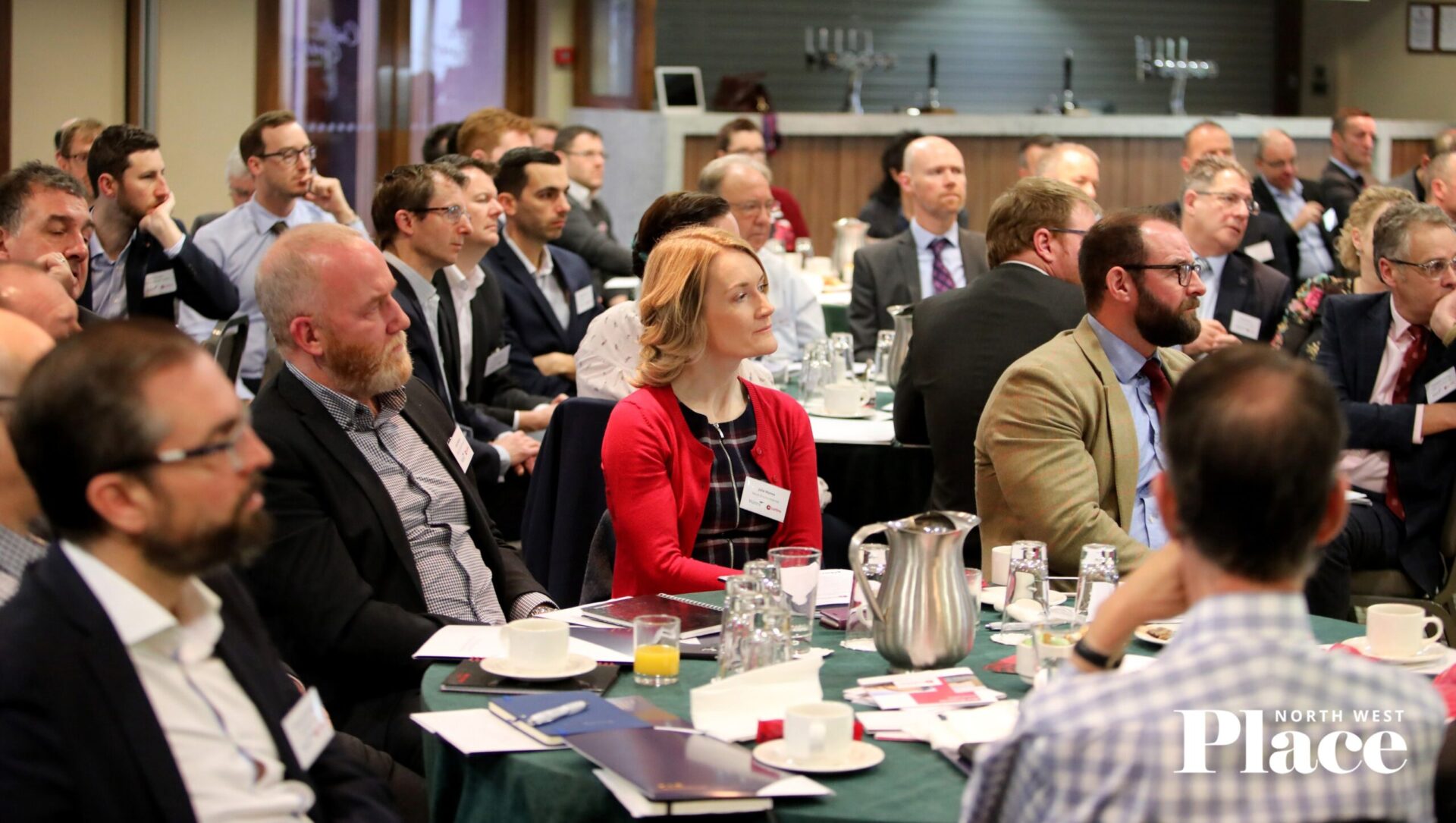Event Summary
Cumbria Update | Summary, slides & photos
The next steps for Carlisle Lake District Airport, the transformation of Whitehaven, the region’s rapidly-changing retail landscape and planning troubles were all under the spotlight at Place North West’s Cumbria Update, part of the Development Series.
More than 120 people attended the half-day conference on 28 February at Kendal’s Castle Green Hotel. The event was sponsored by Curtins and Wates.
The speakers were Kate Willard, director of partnership development at Stobart Group, Alistair Fell, director of Prospus Group, Richard Wooldridge, director of Harrison Pitt Architects, Naomi Fell, director of Harrison Drury Solicitors, Chris Jackson, transport initiatives director for CECA NW, the Civil Engineering Contractors Association, Rob Miller, head of property and development for BEC, John Foster, pre-construction director at Wates Construction, Tom Prescott, director of Barker Proudlove and Haydn Spedding, associate director of Colliers International hotels agency. The event was chaired by Place North West’s senior reporter Charlie Schouten.

Kate Willard got the conference off to a lively start as she described how Stobart Group has evolved to become a UK super-brand specialising in aviation and sustainable energy, with airline Flybe its latest acquisition.
- “Cumbria is a place that should be phenomenally successful. If you look at the skills hot spots, there are two red dots, London and Sellafield, but there are bits that we are missing. The first thing is confidence, another is a kind of clarity,” she argued
- Willard asked how Northerners can make a compelling case for economic investment: “Sometimes we don’t think through the people thing properly. If we sort it out in ‘centre X’, there’s a trickle down – but if we sort it in Carlisle does that benefit Millom?”
- Carlisle Lake District airport began with a distribution centre to give the crucial property revenue needed to sustain a regional airport. “The first thing people say is ‘it’s just like a real airport!’ I think people thought it was going to be a Portacabin”
- She said there had been “unbelievable” political support for the airport and that, though the company is ambitious, they would announce new routes cautiously: “There’s no point putting any routes on that won’t be sustainable. It’s an airport that’s owned by you, by the people of Cumbria. Get on those planes and enjoy it”
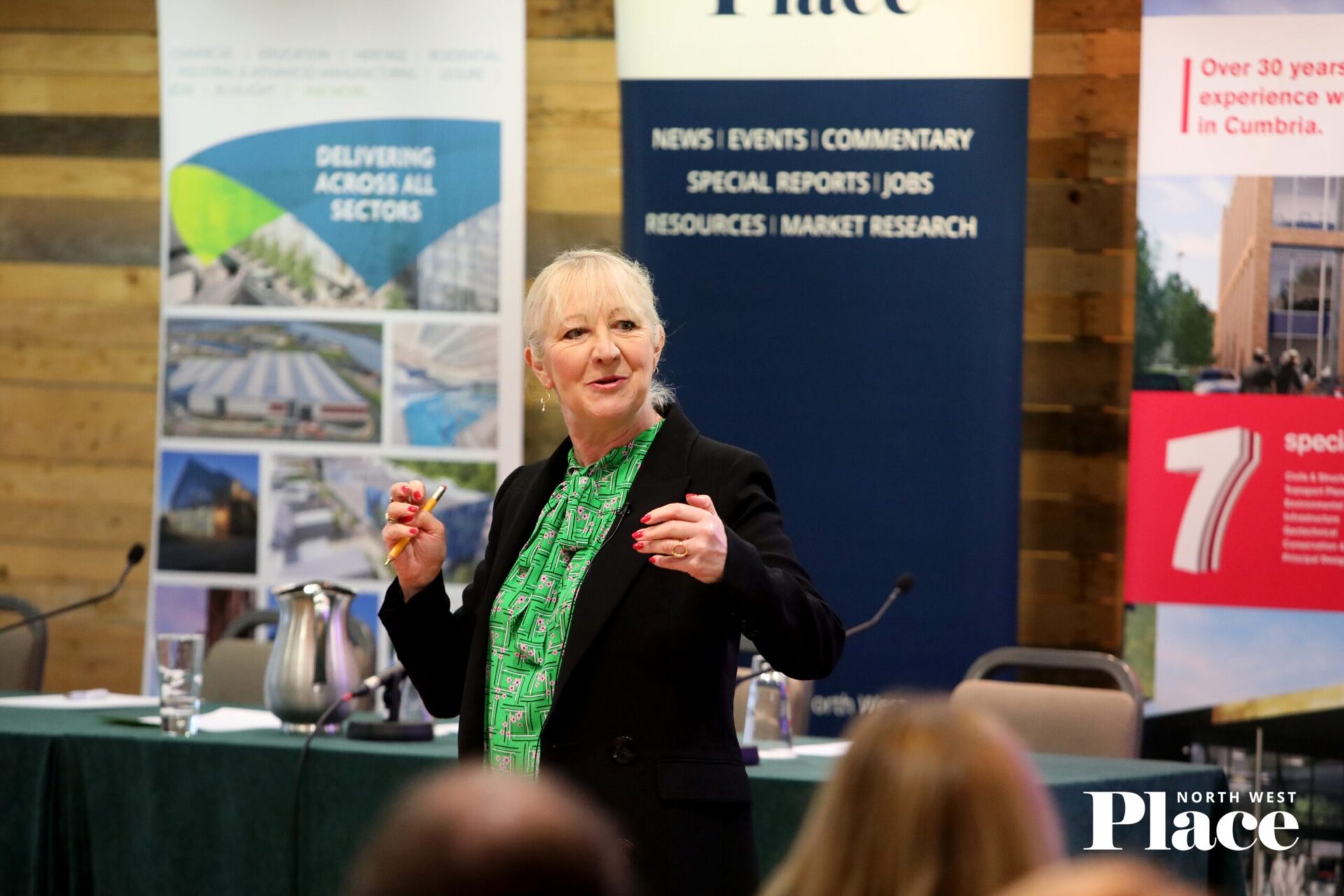
Kate Willard, Stobart Group
ModVillage
Alistair Fell’s Prospus Group then presented on ModVillage, a complex of offices made from recycled shipping containers, at Kingmoor Park in Carlisle, Cumbria’s Enterprise Zone. Planning consent is expected in April.
- “We import more [shipping containers] than we export so there’s a surplus. They make a pretty decent basis for a building – what our architects have done is pretty magical”, he said
- He said there is a demand in Carlisle, with parking an issue in the city centre. ModVillage will provide highly finished and furnished spaces with a kitchenette and a WC, ranging from a typical size of 600 sq ft, up to 3,000 sq ft
- Fell said: “Is Cumbria ready for this? Yes, definitely. They’re accessible for start-ups with attractive rental yields but are affordable for tenants. It’s a plug and play approach – it’s incredible how quickly we can deploy them with minimal disruption”
- Outlining the benefits of using shipping containers, Fell added: “They are factory built so there’s no on-site risk; sustainable, energy efficient, relatively cheap to build, scalable, there’s minimal civils costs, relatively light foundations, they can be used to cap contaminated sites, and can be raised above car parks”

Alistair Fell, Prospus Group
Planning problems
Fell then joined a panel featuring Richard Wooldridge, Naomi Fell, and Chris Jackson.
- Jackson said Cumbria is a difficult place to connect in terms of infrastructure, the north-south link exists but east-west is a bit of a challenge. He added we won’t see full development of the Energy Coast without that east-west link
- Alistair Fell said ModVillage is looking to attract young and diverse new businesses. Lawyers, accountants, designers, a digital agency, and a radio station are all expressing an interest in taking space off-plan. He added Kingmoor Park’s connectivity was incredibly important to the development
- Naomi Fell expressed frustration about local authority planners: “They put stumbling blocks in the way. They want the World Heritage Site but they don’t want the housing. The process is taking too long.” She gave examples of developers willing to invest in the commercial side but wouldn’t touch housing projects, and said inflated land values were leading to undeliverable sites. “Local authorities are losing out and need more grit”
- Wooldridge agreed, citing local authorities without in-house legal teams as an added complication
- Alistair Fell added all planning authorities were overstretched with processes contributing as much as the lack of ambition
- Jackson discussed the halting of the Moorside project. He stated the benefits there would have been to infrastructure, particularly upgrading the Cumbrian Coast railway line. He also referred to the impact on housing and long term employment and said it was important not to lose the enthusiasm: “So much has been invested in skills growth.”
- A delegate asked what project has the most chance of increasing revenue for Cumbria. Fell said “Give the housebuilders the chance to build homes needed for the people to work here.” Wooldridge added: “Give them [the local authority planners] a really solid design and access statement, invest in design, give them no reason to say no”
- Jackson was asked how transport projects could unlock empty sites. He said new investment in the Port of Workington would improve another route: “It’s very encouraging. This is an asset not as well recognised as it should be.” He also cited West Cumbria Mining’s application as another initiative which would benefit the coastal railway line: “Let’s hope they get consent”
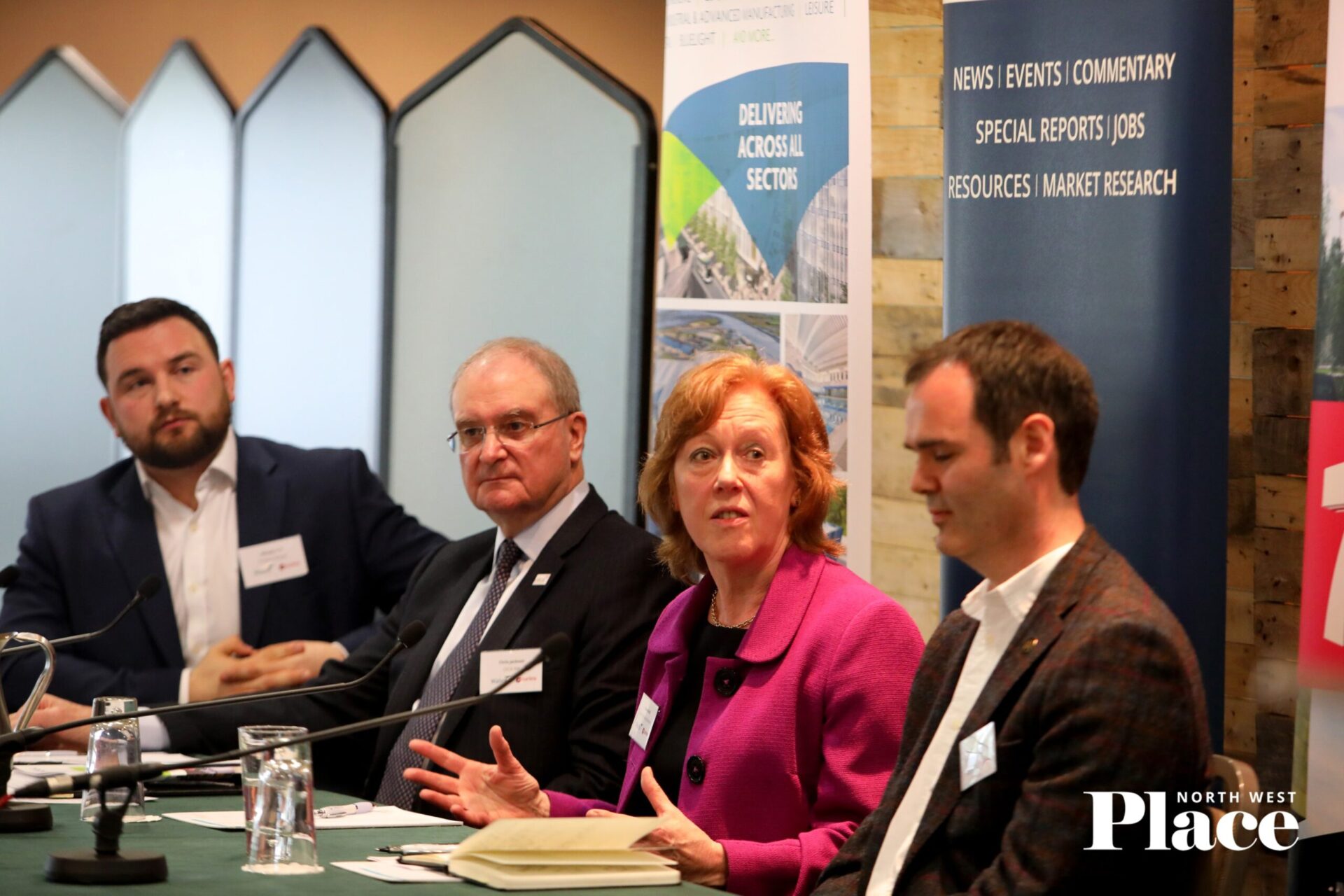
Left to right: Alistair Fell, Prospus Group; Chris Jackson, CECA; Naomi Fell, Harrison Drury Solicitors; Richard Wooldridge, Harrison Pitt Architects
Transforming Whitehaven
The next speaker was Rob Miller from Britain’s Energy Coast, who outlined the company’s vision for the regeneration of Whitehaven.
- BEC has joined forces with Copeland Borough Council and Whitehaven Harbour Commissioners to create the North Shore development, on land with architecture which “signalled its past prosperity”, but had been scarred by industry. BEC wants the development to “recreate the connection between the town centre and the harbour, creating a flow of people and footfall”
- At over 75,000 sq ft, it will feature waterfront offices, a four star hotel, food and drink venues, a high tech work space for start-ups, a secure car park and put £2.5m into local infrastructure
- He used the term “employment tourism” – capturing those who visit for business. Developing Whitehaven as a better tourist destination was a future aspiration, with a watersports scheme by the Harbour Commissioners a key part, filling a gap as Cumbria “does not have a special coastal visitor attraction”
- He said they were aiming for local and national occupiers, and non-nuclear businesses, with eight already expressing serious interest in the development’s small business space. His rallying cry was for people with vision to engage with them: “We want your ideas”
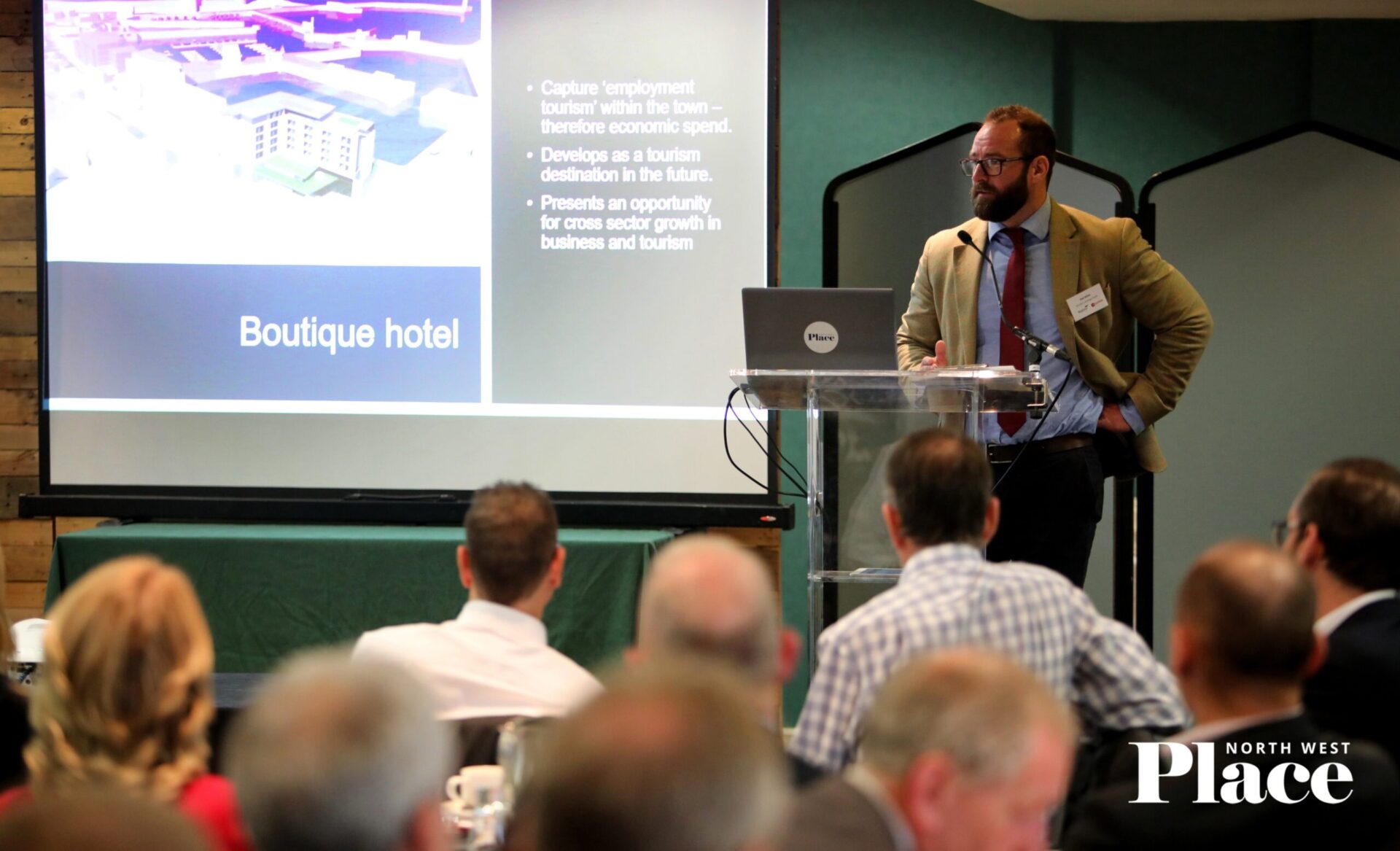
Rob Miller, BEC
Changing retail
Miller was joined by John Foster, Tom Prescott, and Haydn Spedding, for the second panel discussion.
- Miller emphasised the need for change: “Whitehaven hasn’t moved in 25 years. We need to turn to the local authority to look at radical town centre planning. What we want in Whitehaven is independent retailers. We need to be Cockermouth by the sea. Attracting nationals also brings sustainability”
- Foster talked about the success of opening an office in Cumbria, working on projects as diverse as the Whitehaven campus and the forthcoming replacement of The Sands Centre in Carlisle, as well as another leisure centre due to be announced: “We were nervous about what we were getting in to but we’ve been received really well. Public sector has kept us going, this region is very open to frameworks, SCAPE is very popular”
- Spedding discussed the new interest in Cumbria by foreign investors who were buying larger hotels rather than buying in London and investing in their assets, boosting trade for contractors
- Prescott said the situation was more difficult for retailers: “There have been very few shopping centre deals. Interest ebbs and flows. If you buy large assets the risk is different. If the catchment is smaller, it becomes more challenging”
- Miller was quizzed further about North Shore. Emphasising he was a Whitehaven native, he said: “The biggest obstacle is Cumbrians. We are so bloody negative. This is about bringing people with us. It’s a significant challenge”
- Prescott said charging for car parking in anywhere other than city centres was unnecessary and showcased Northwich in Cheshire, which had a noticeable vibrancy after parking charges were removed. He also stated “old-school pay and display” sent people dashing back to their cars, and said a suggestion by Spedding for pay-on-exit car parks would leave people “less inclined to run”
- There was also debate about whether a food hall, similar to Altrincham Market, could work here. The general opinion was negative. Prescott said: “There is no identikit solution”
- The final question was about the most important step local authorities could take to see town centres thrive. Foster: “It’s about home grown talent that the area is losing.” Prescott: “Other than parking, a concerted strategy to incentivise entrepreneurs.” Miller: “Strong leadership and rational thinking. And have we got people with the right mindset to run a business? That has to come through the private sector.” Spedding: “We mustn’t lose enthusiasm, we must celebrate what we’ve got”
The presentations from the day can be accessed here:
Click any image to launch gallery
- Left to right: John Foster, Wates; Tom Prescott, Barker Proudlove; Rob Miller, BEC
- Left to right: John Foster, Wates; Tom Prescott, Barker Proudlove; Rob Miller, BEC; Haydn Spedding, Colliers
- Left to right: John Foster, Wates; Tom Prescott, Barker Proudlove; Rob Miller, BEC; Haydn Spedding, Colliers
- Left to right: John Foster, Wates; Tom Prescott, Barker Proudlove; Rob Miller, BEC; Haydn Spedding, Colliers
- Rob Miller, BEC
- John Foster, Wates
- Left to right: John Foster, Wates; Tom Prescott, Barker Proudlove; Rob Miller, BEC; Haydn Spedding, Colliers
- Haydn Spedding, Colliers
- Left to right: John Foster, Wates; Tom Prescott, Barker Proudlove; Rob Miller, BEC; Haydn Spedding, Colliers
- Left to right: John Foster, Wates; Tom Prescott, Barker Proudlove; Rob Miller, BEC; Haydn Spedding, Colliers
- Rob Miller, BEC
- Rob Miller, BEC
- Rob Miller, BEC
- Left to right: Chris Jackson, CECA; Naomi Fell, Harrison Drury Solicitors; Richard Wooldridge, Harrison Pitt Architects
- Left to right: Alistair Fell, Prospus Group; Chris Jackson, CECA; Naomi Fell, Harrison Drury Solicitors; Richard Wooldridge, Harrison Pitt Architects
- Alistair Fell, Prospus Group
- Left to right: Alistair Fell, Prospus Group; Chris Jackson, CECA; Naomi Fell, Harrison Drury Solicitors; Richard Wooldridge, Harrison Pitt Architects
- Chris Jackson, CECA
- Left to right: Alistair Fell, Prospus Group; Chris Jackson, CECA; Naomi Fell, Harrison Drury Solicitors; Richard Wooldridge, Harrison Pitt Architects
- Left to right: Alistair Fell, Prospus Group; Chris Jackson, CECA; Naomi Fell, Harrison Drury Solicitors; Richard Wooldridge, Harrison Pitt Architects
- Left to right: Alistair Fell, Prospus Group; Chris Jackson, CECA; Naomi Fell, Harrison Drury Solicitors; Richard Wooldridge, Harrison Pitt Architects
- Alistair Fell, Prospus Group
- Kate Willard, Stobart Group
- Alistair Fell, Prospus Group
- Alistair Fell, Prospus Group
- Kate Willard, Stobart Group


